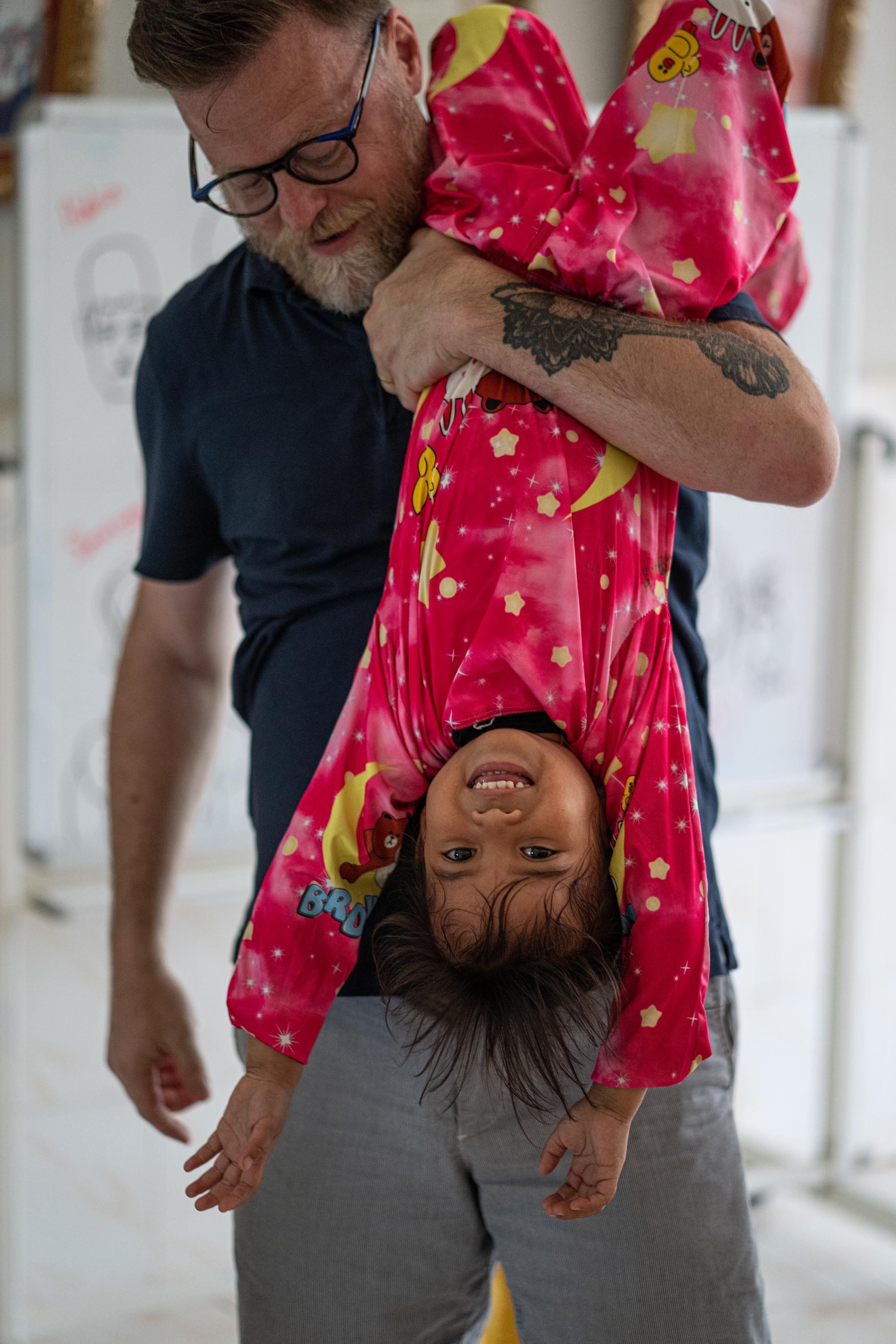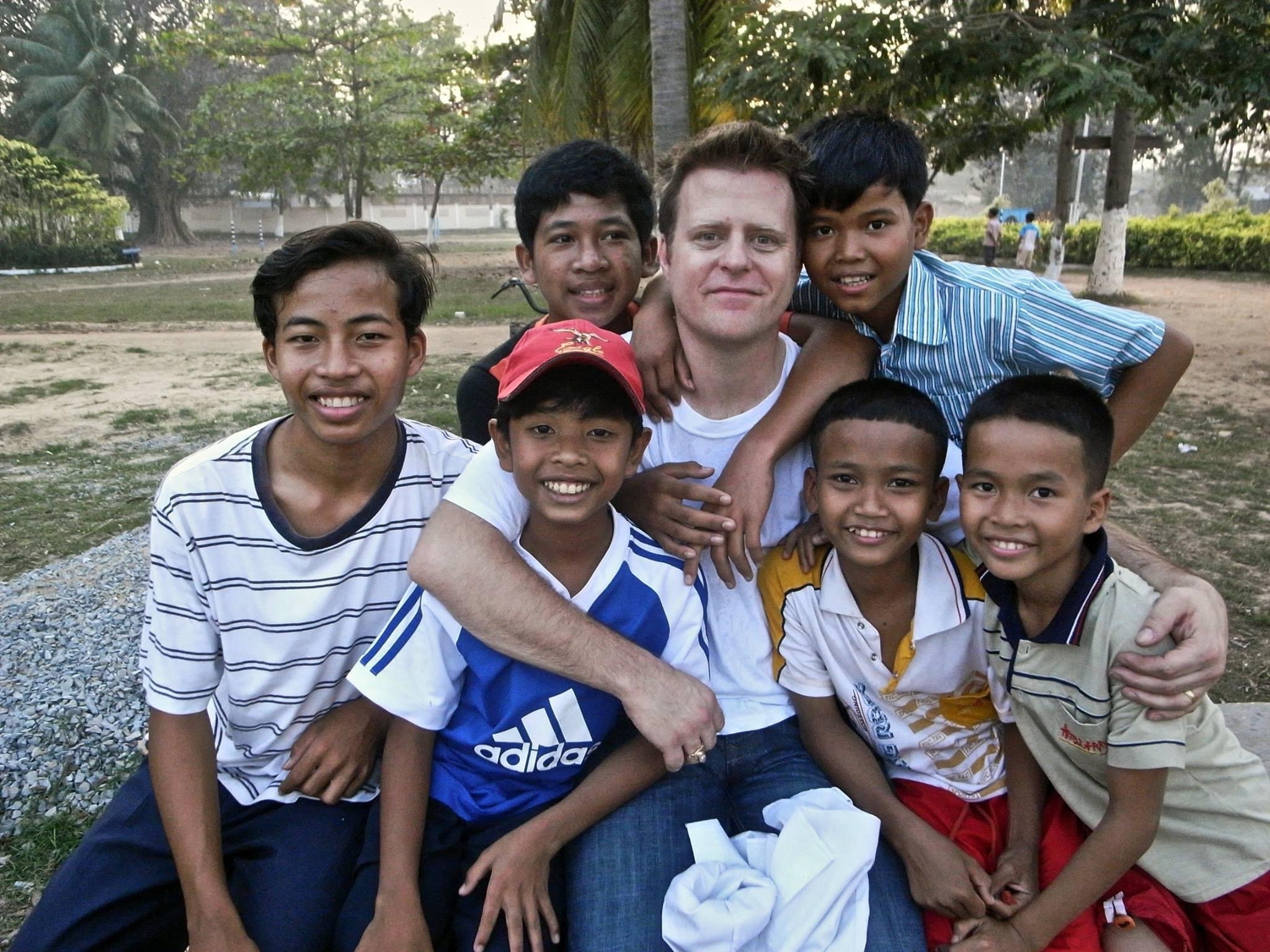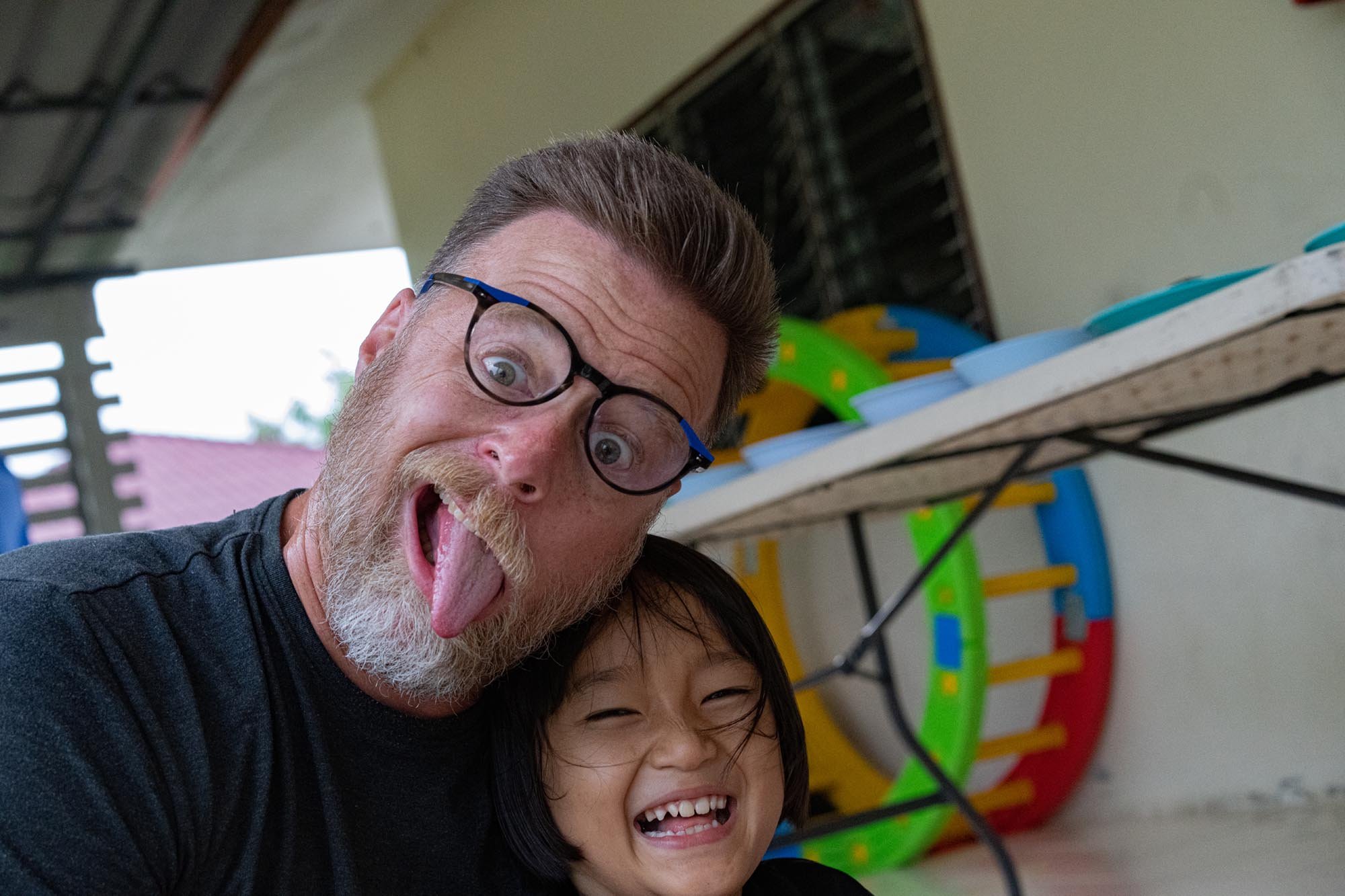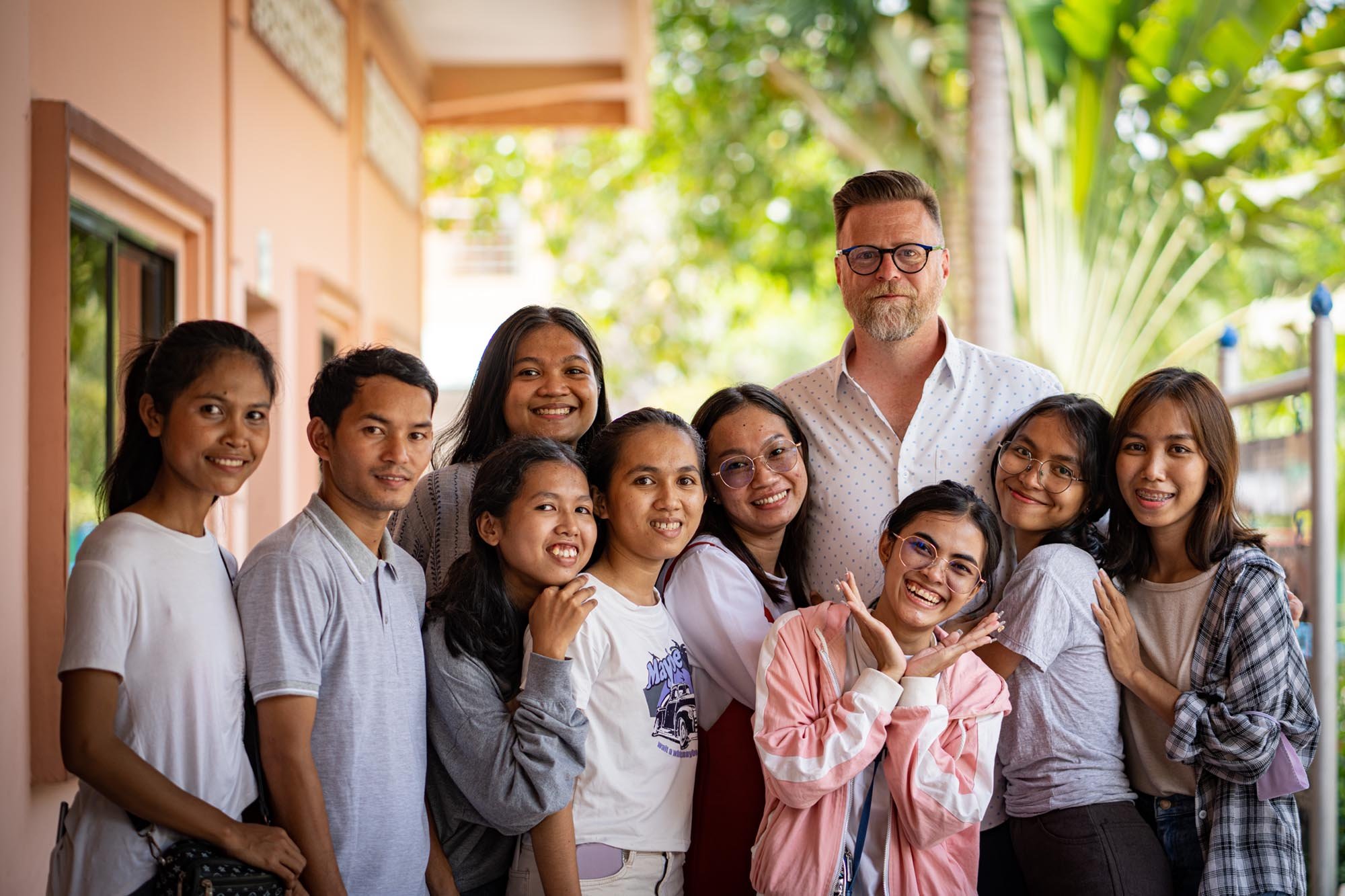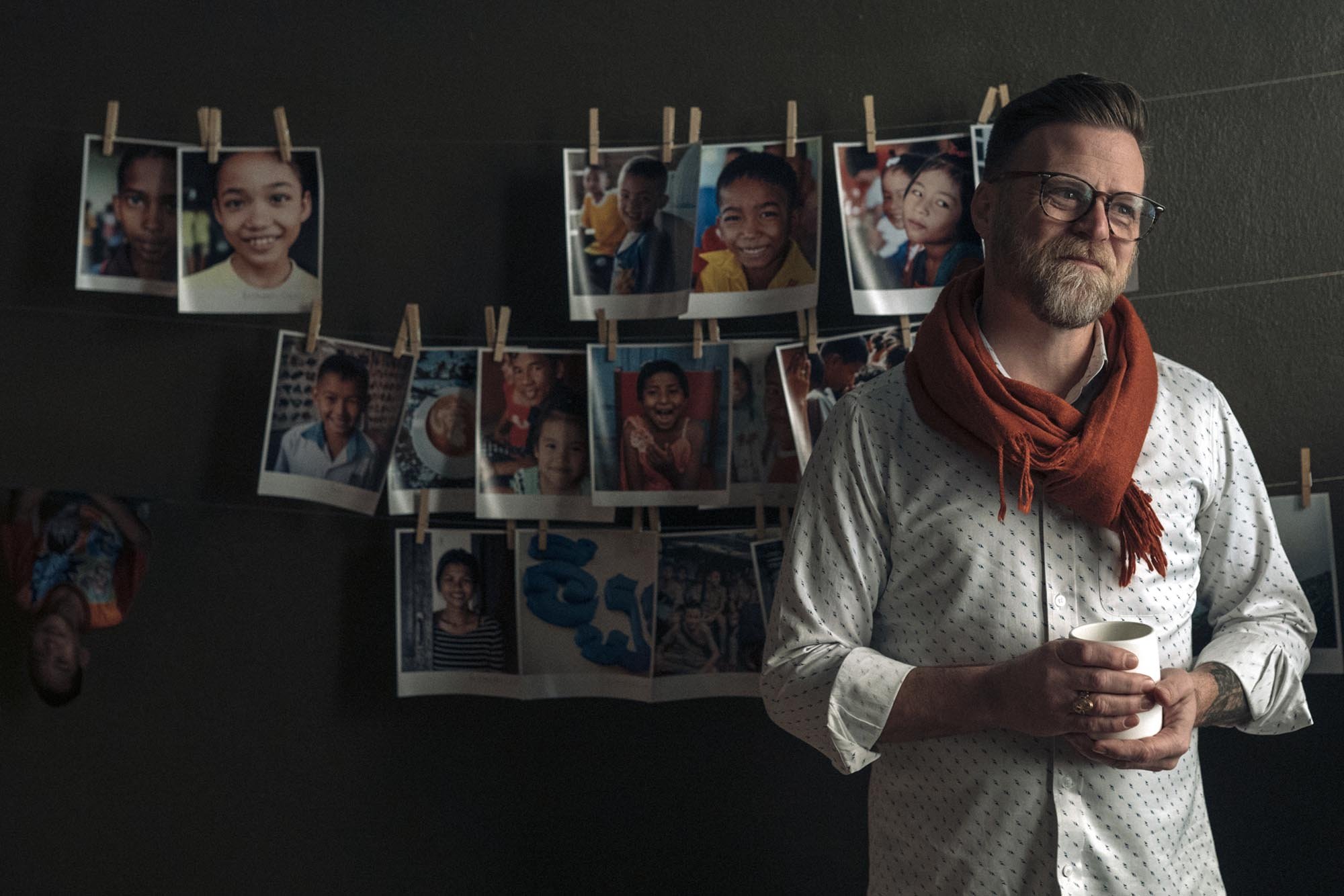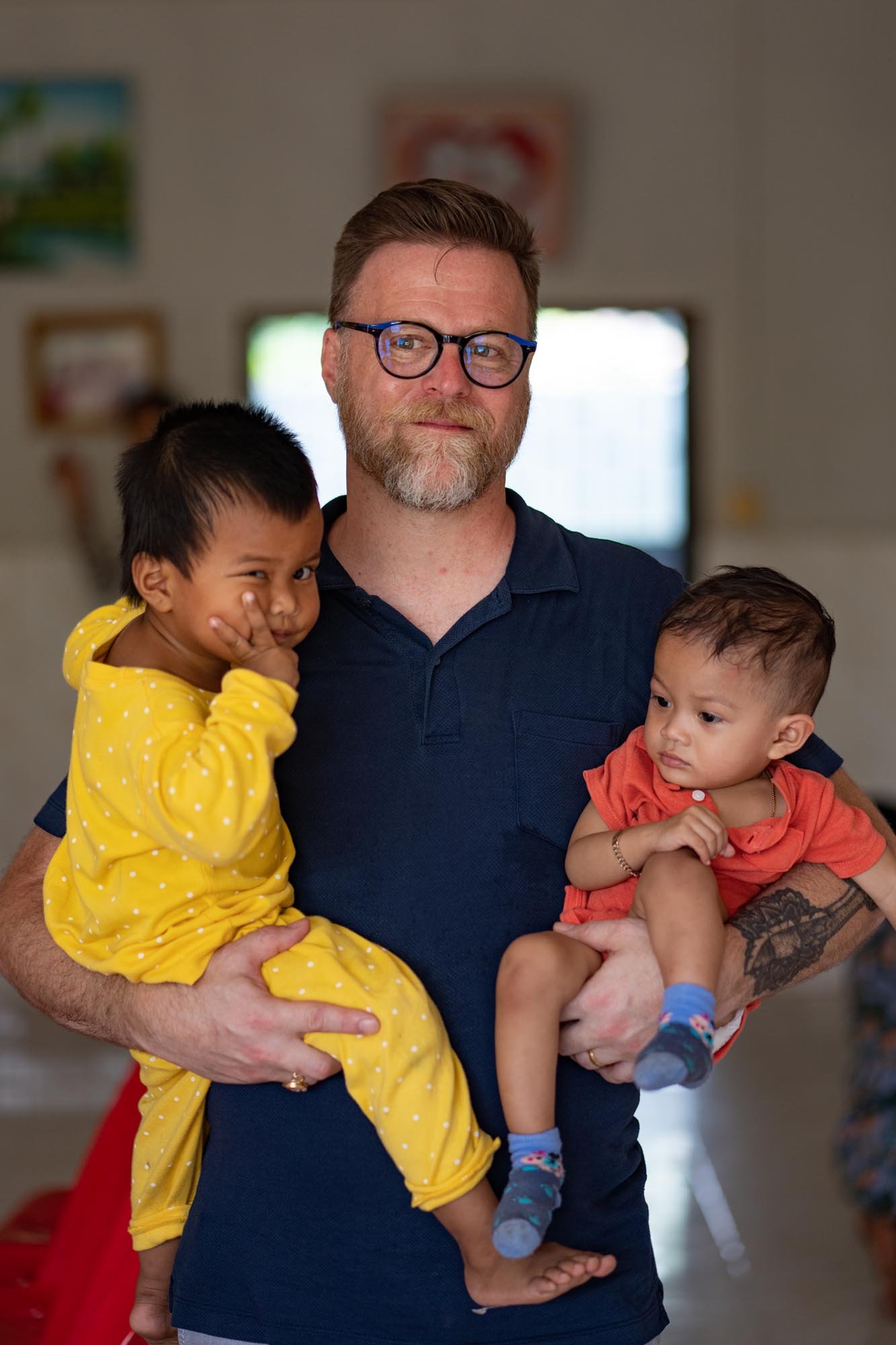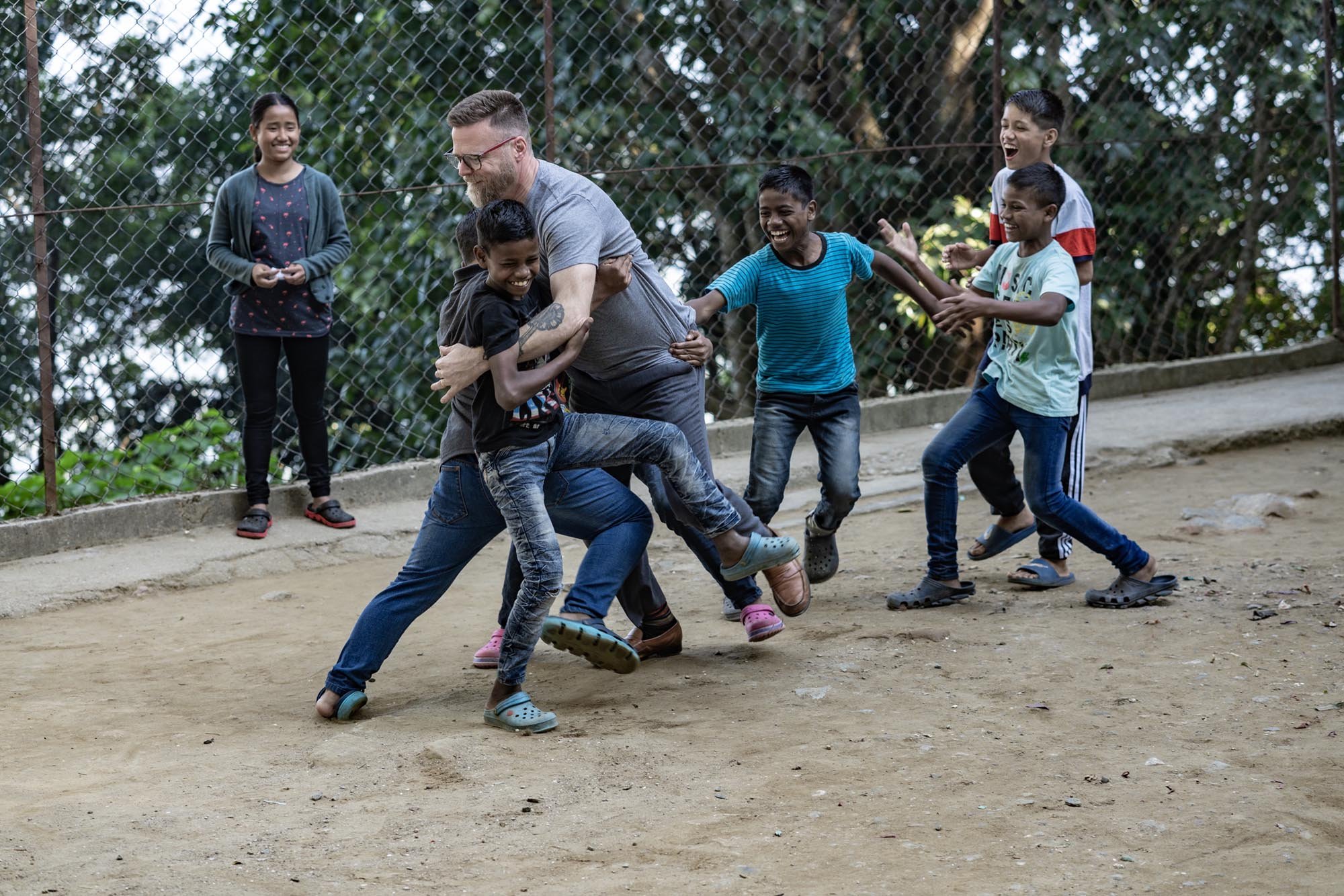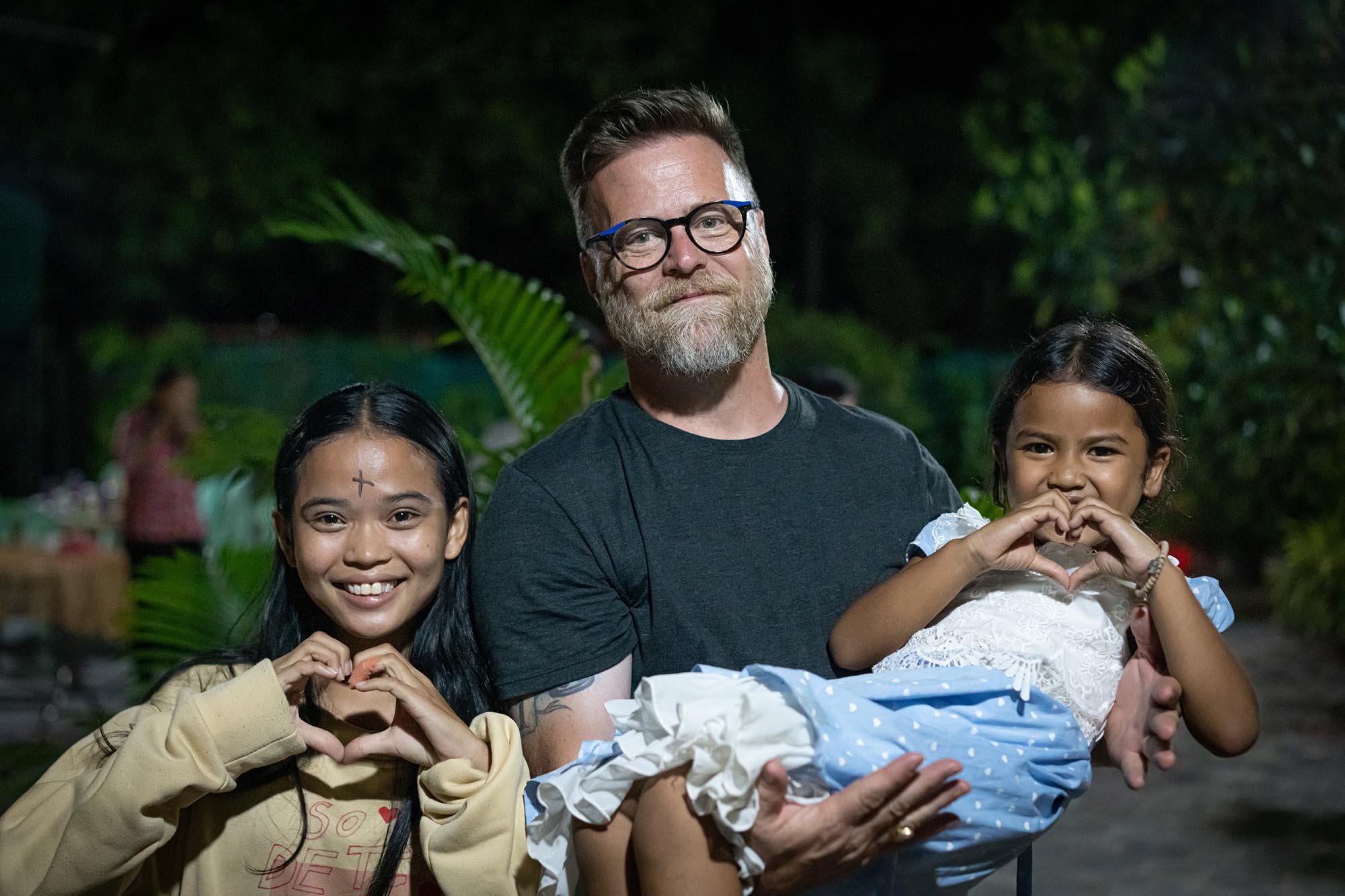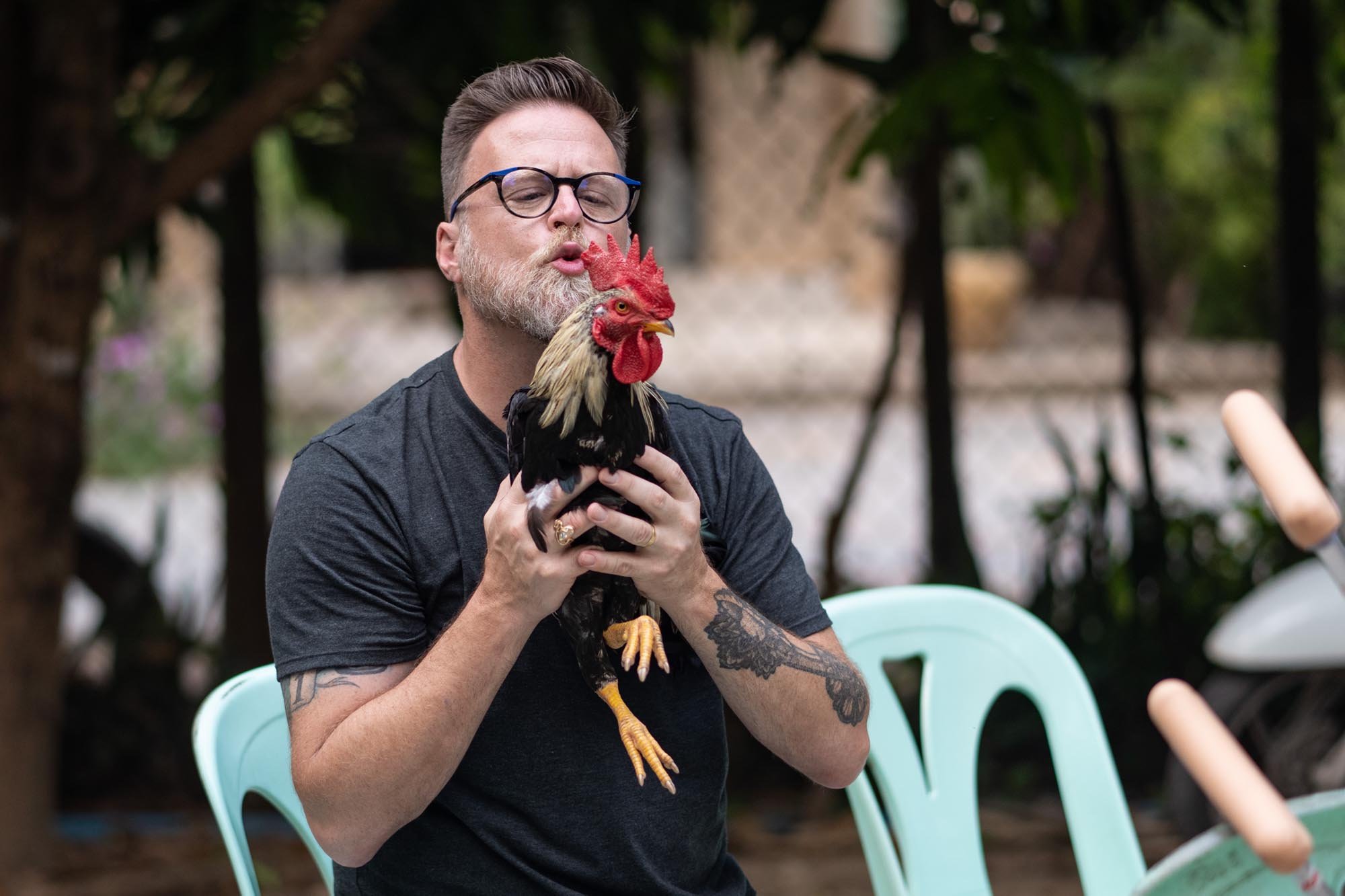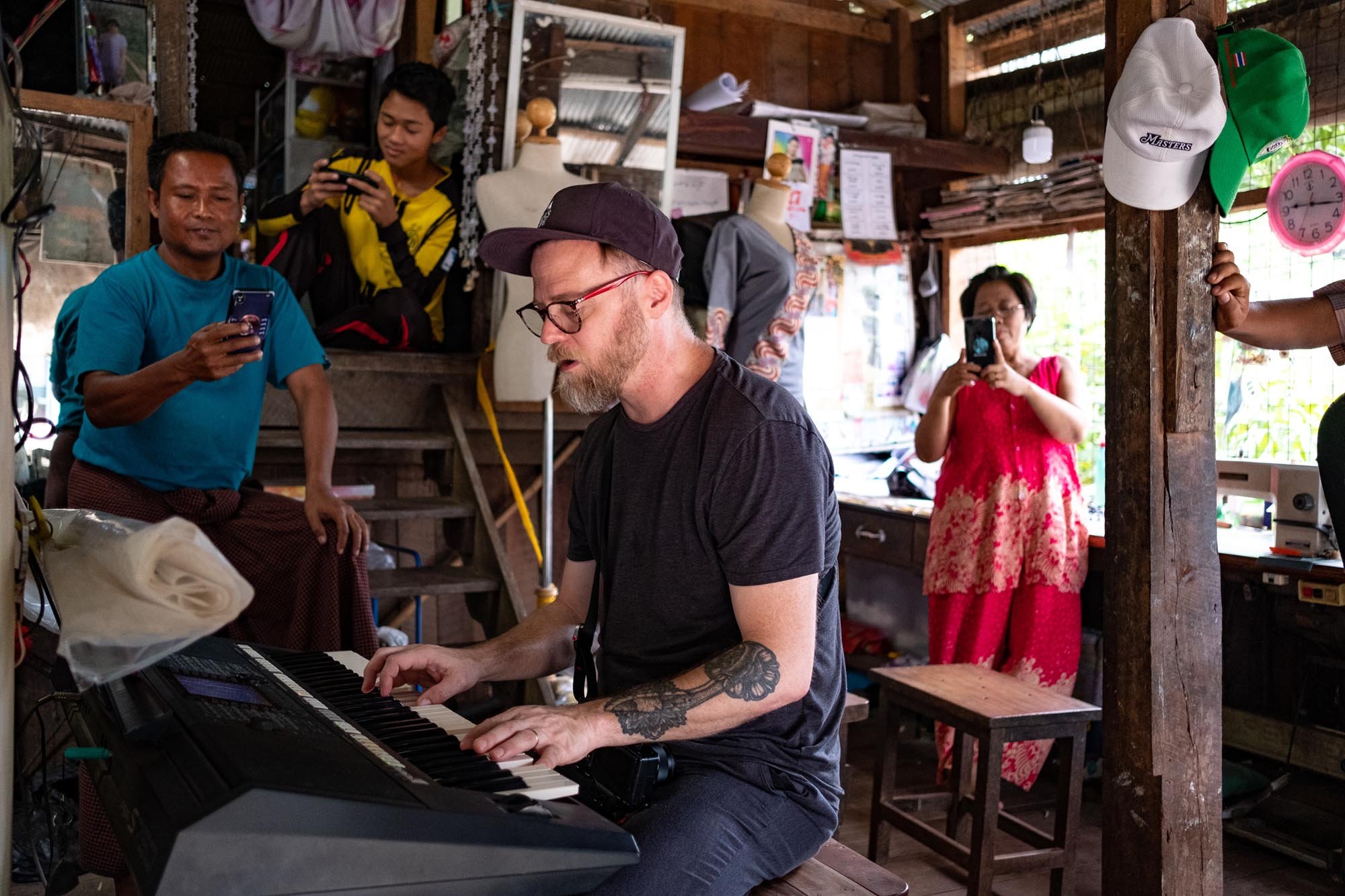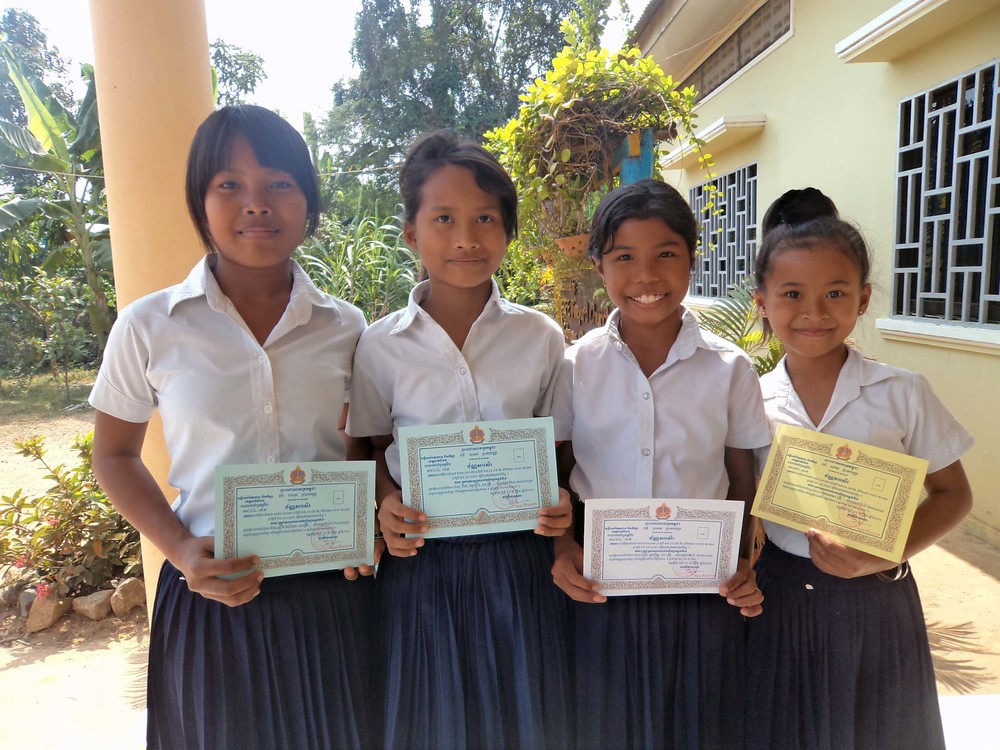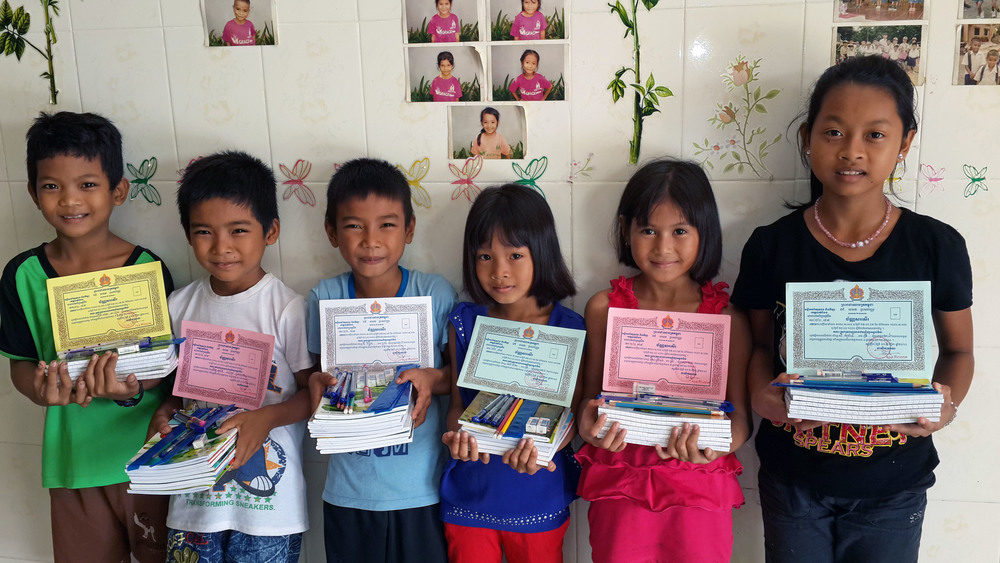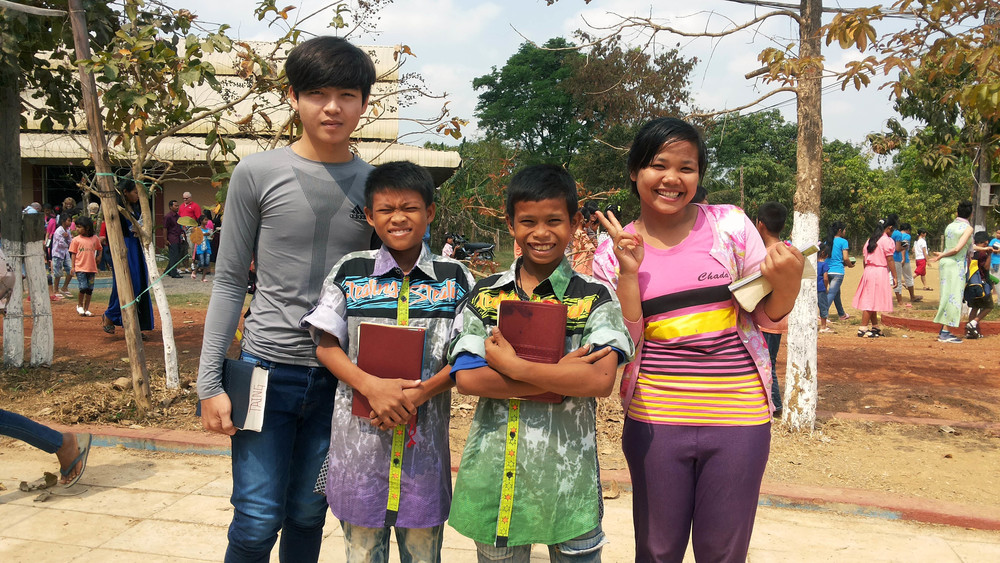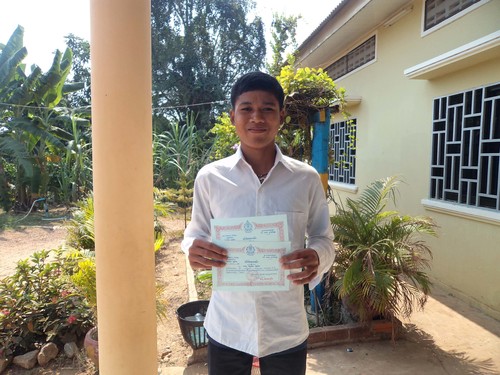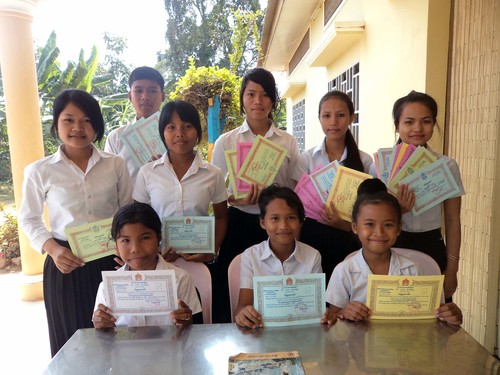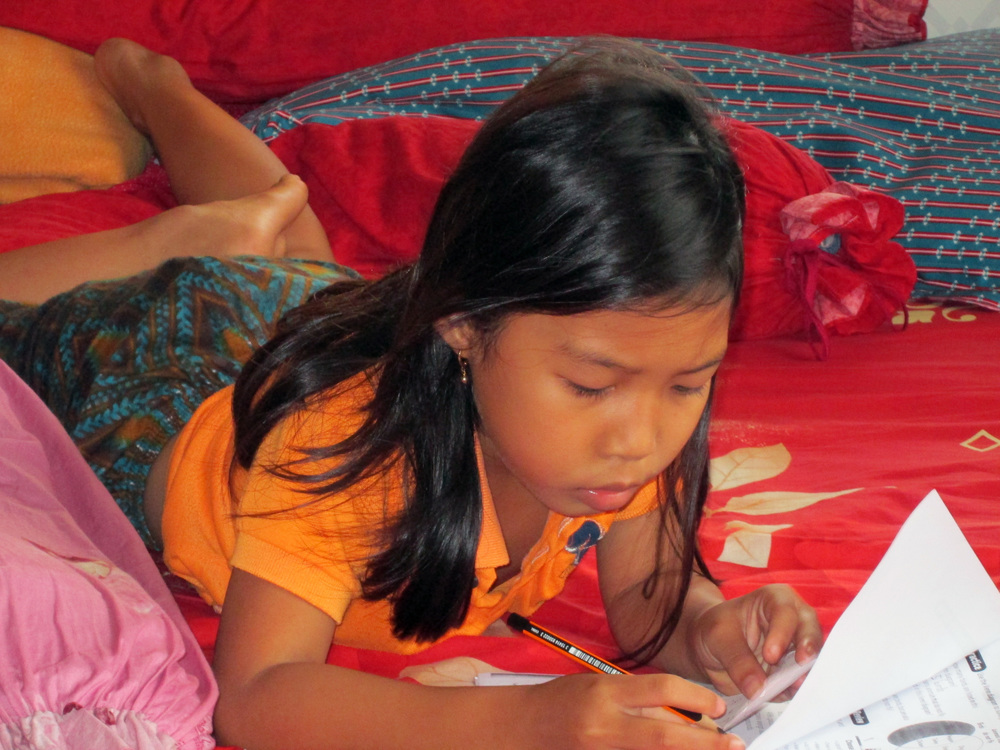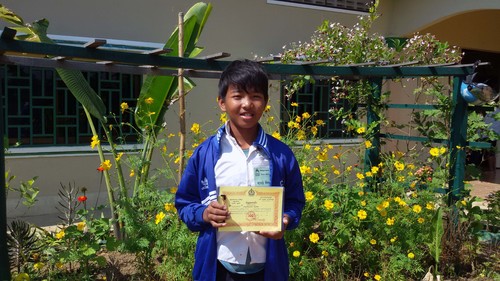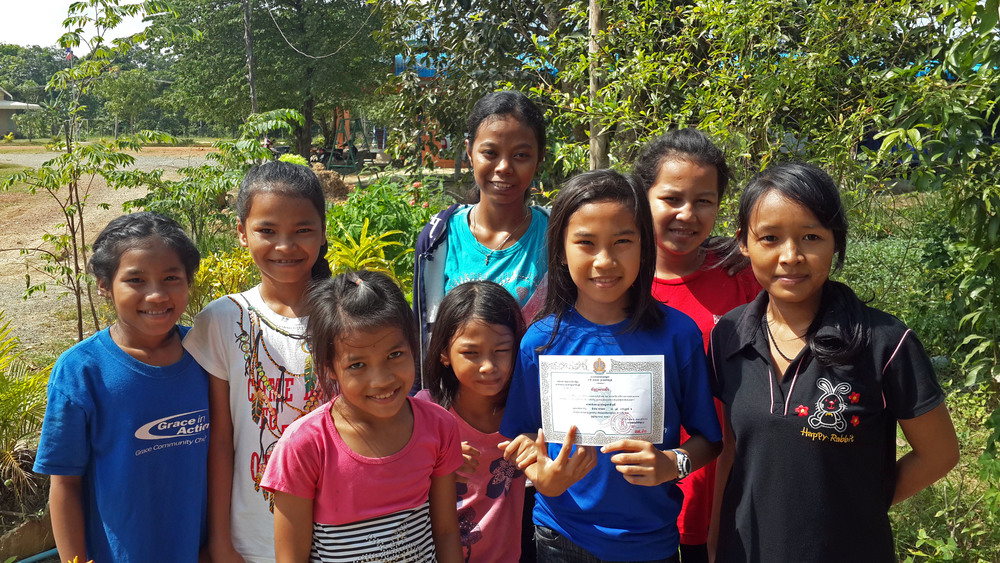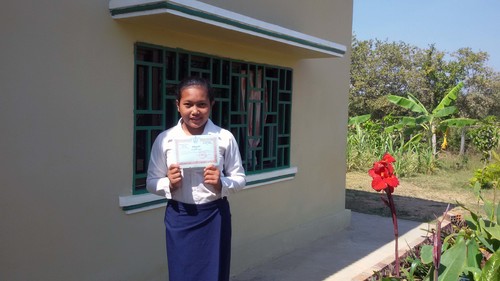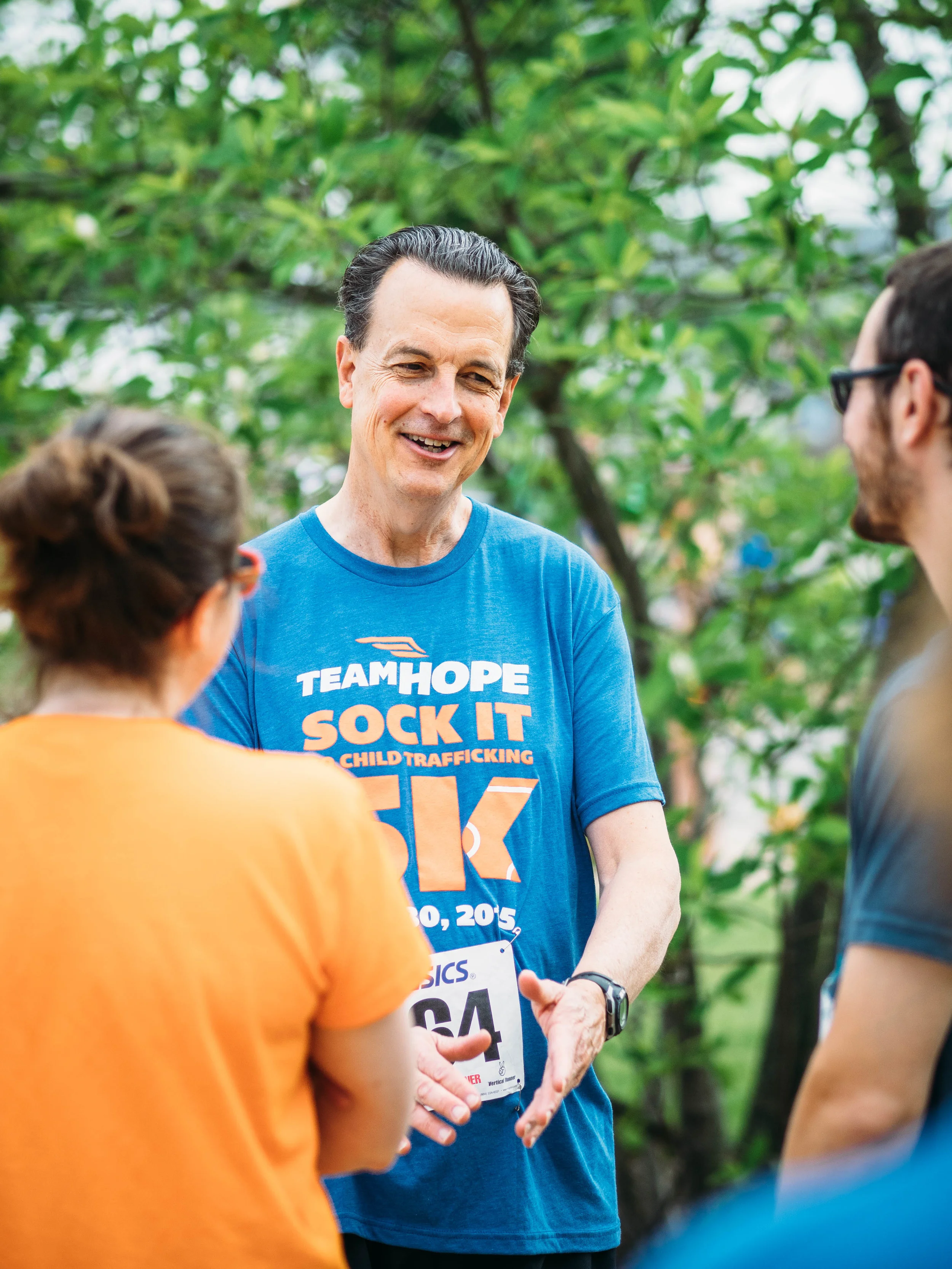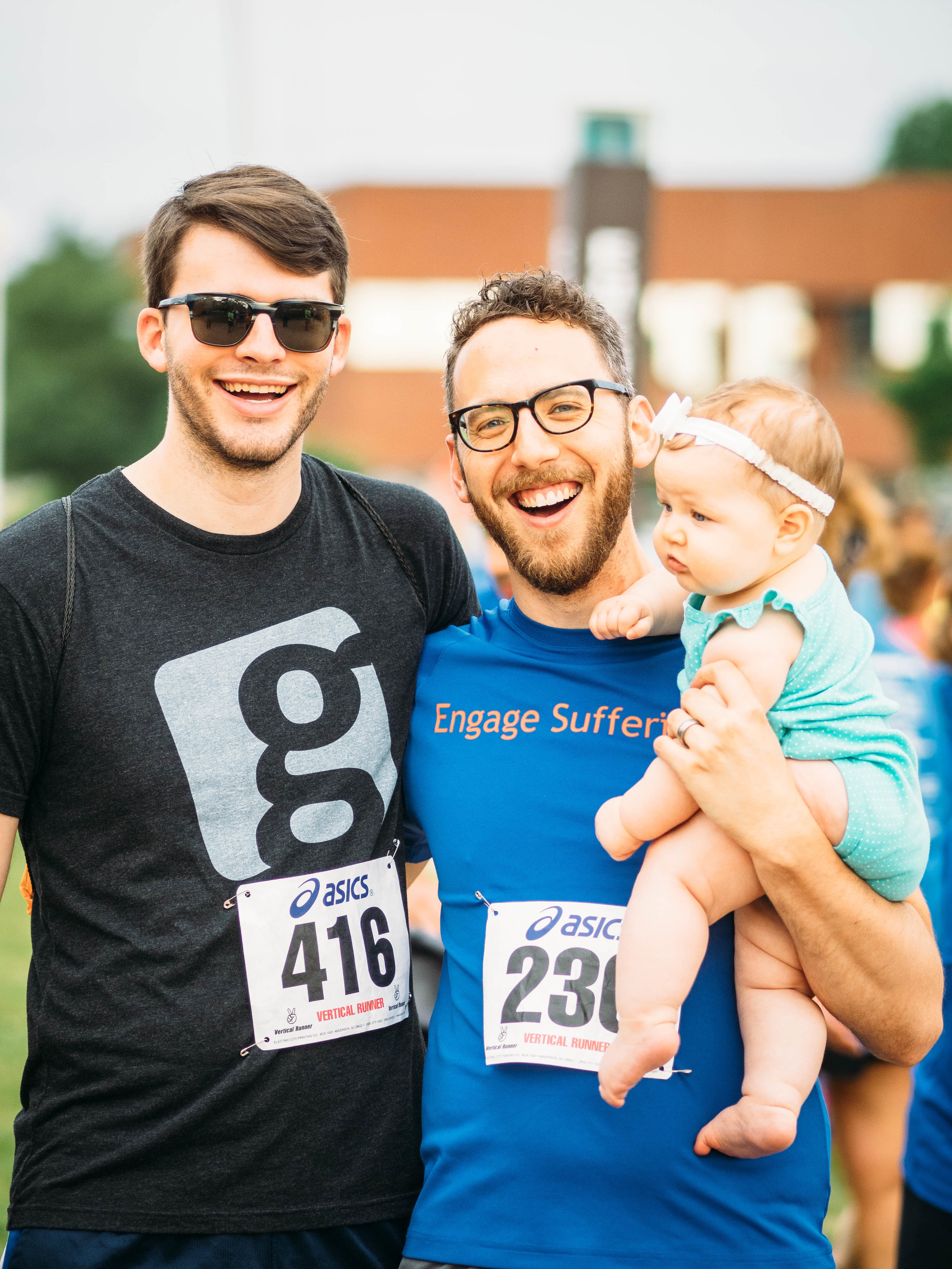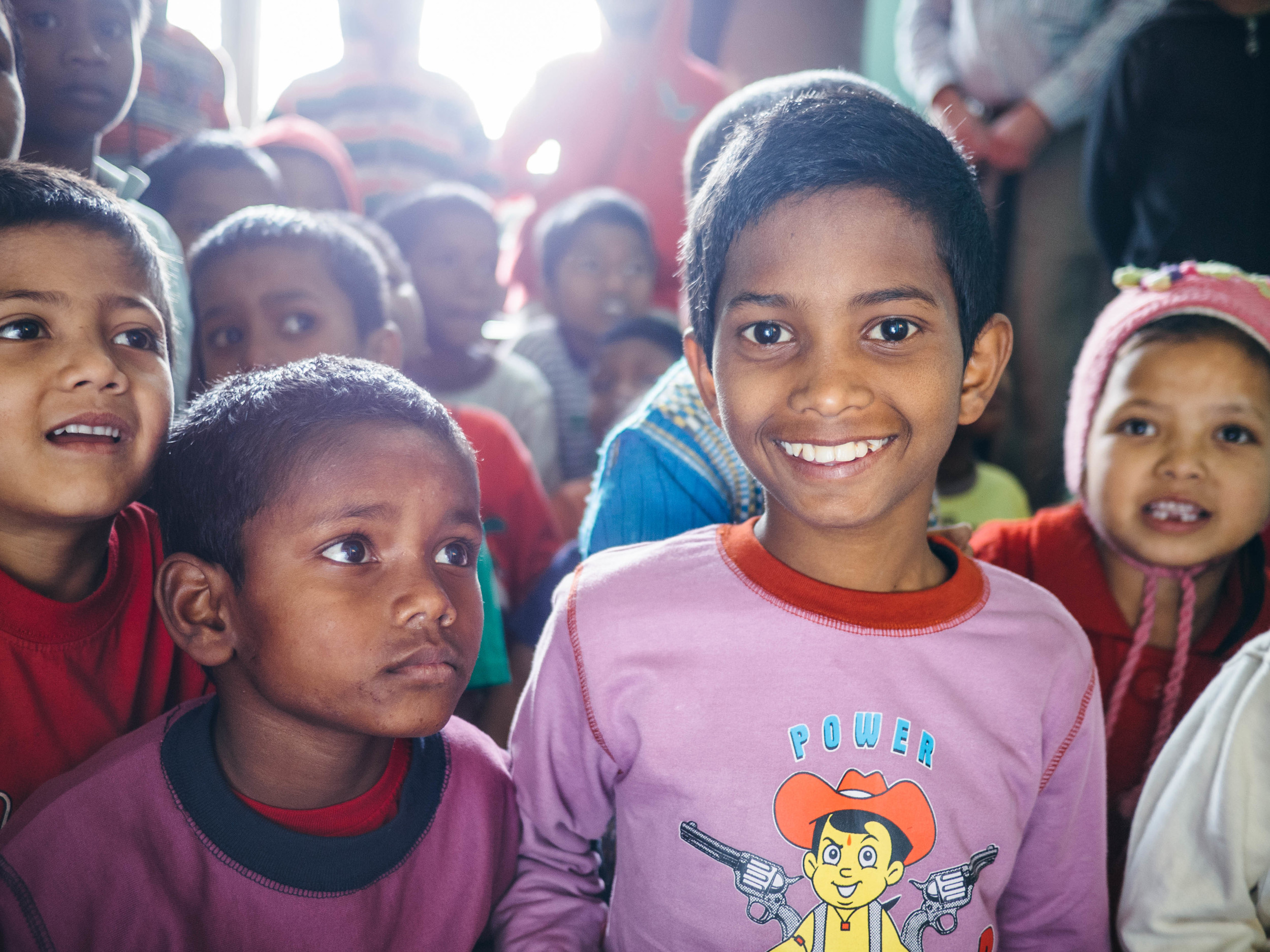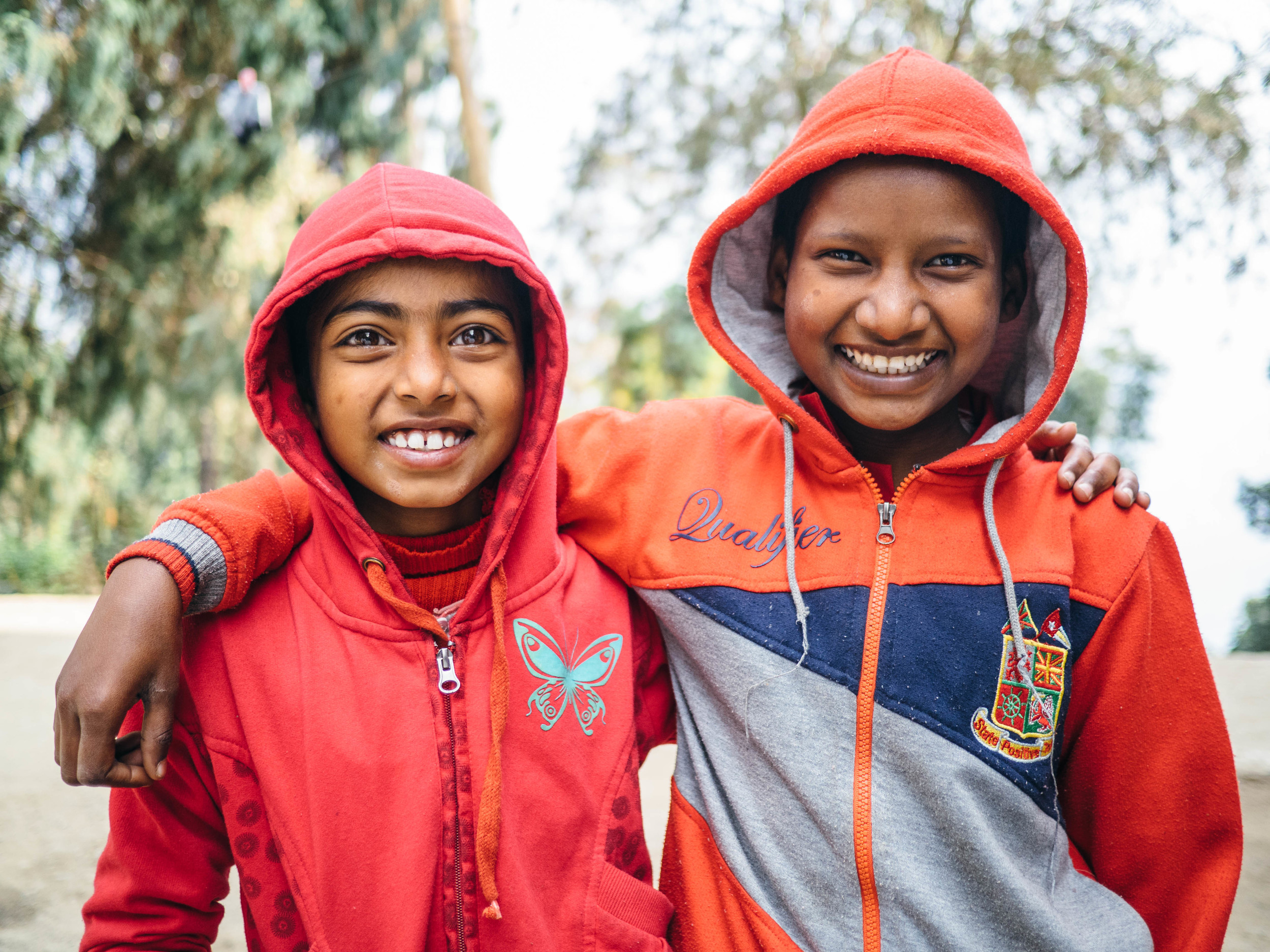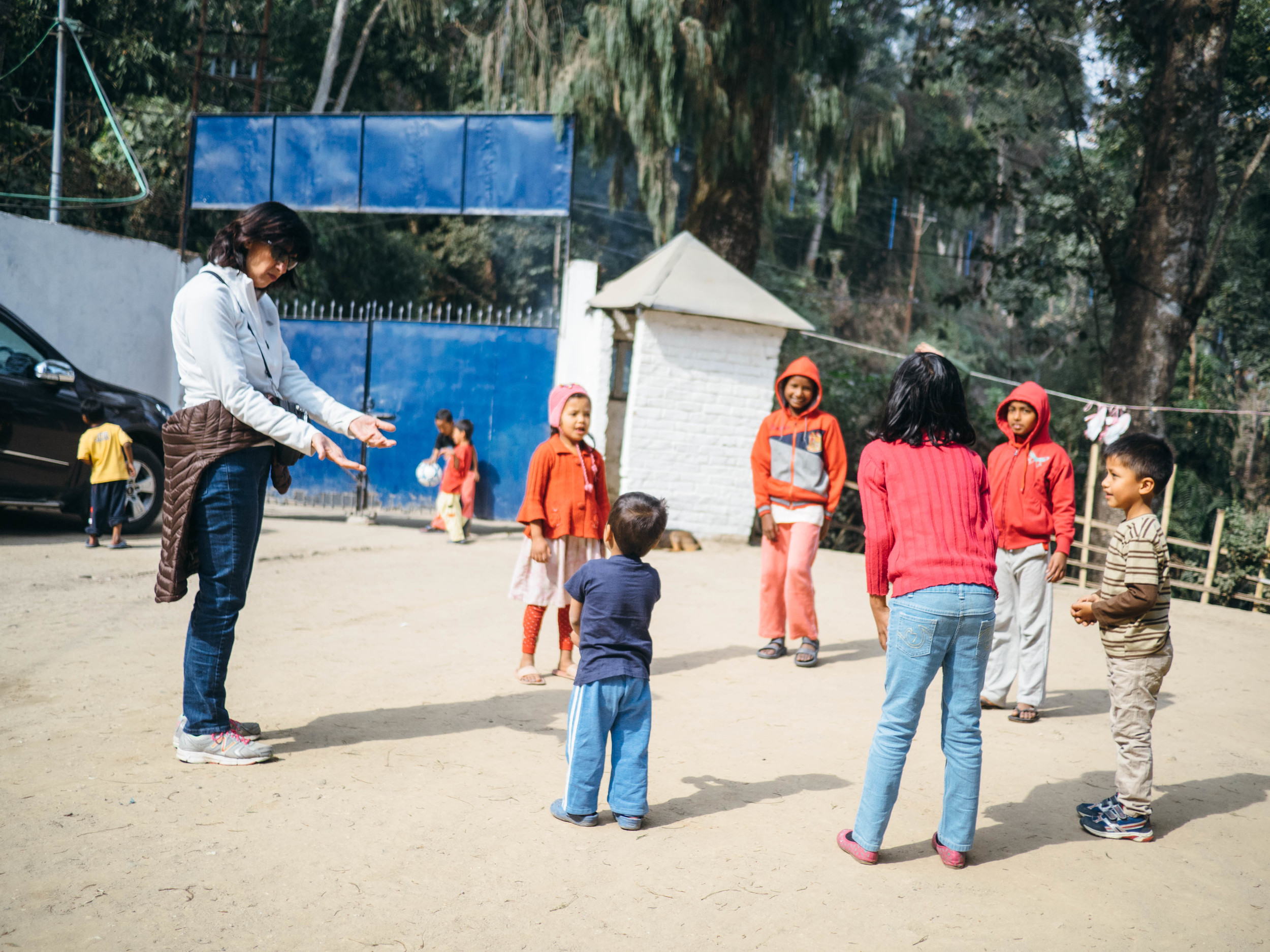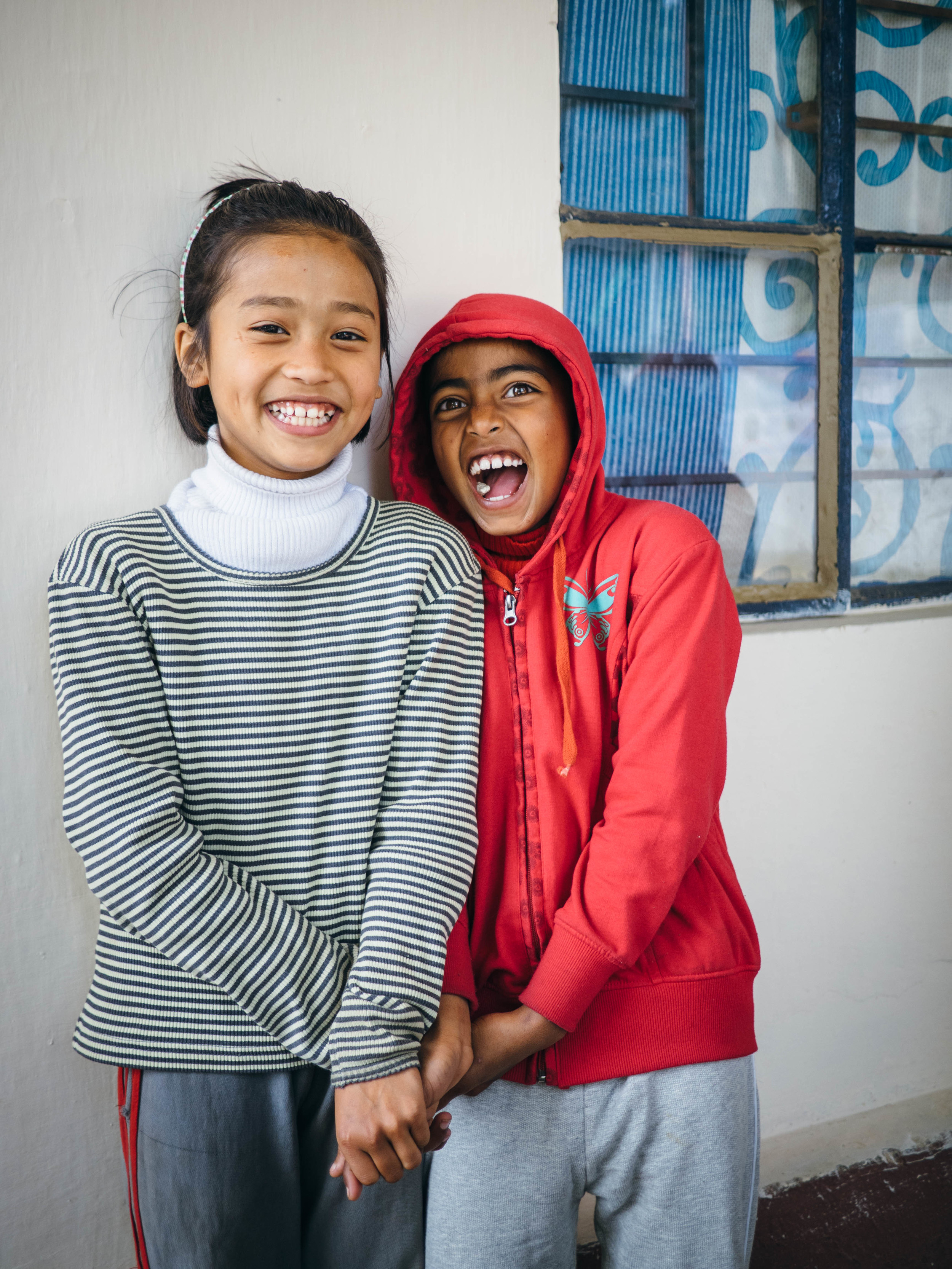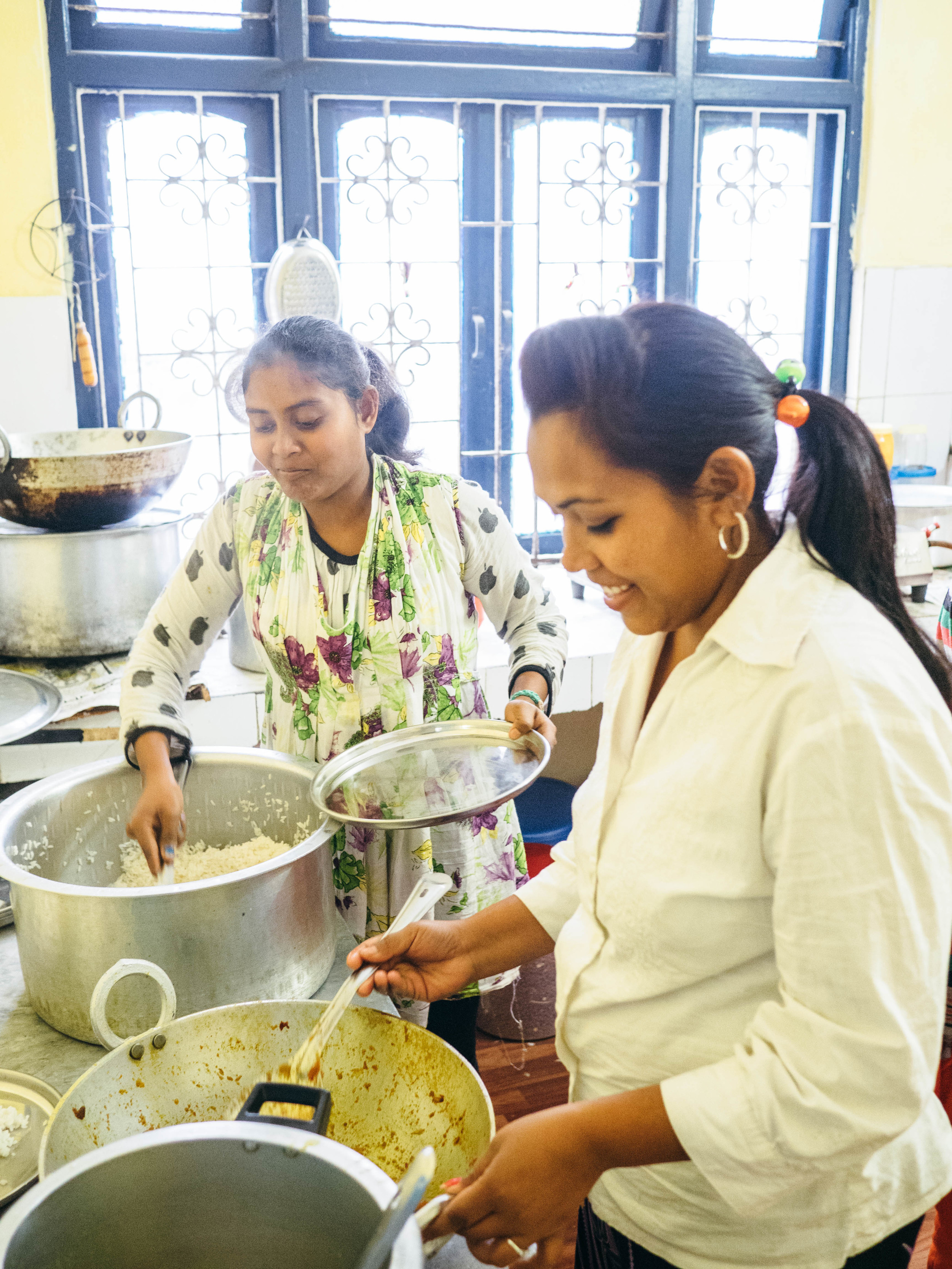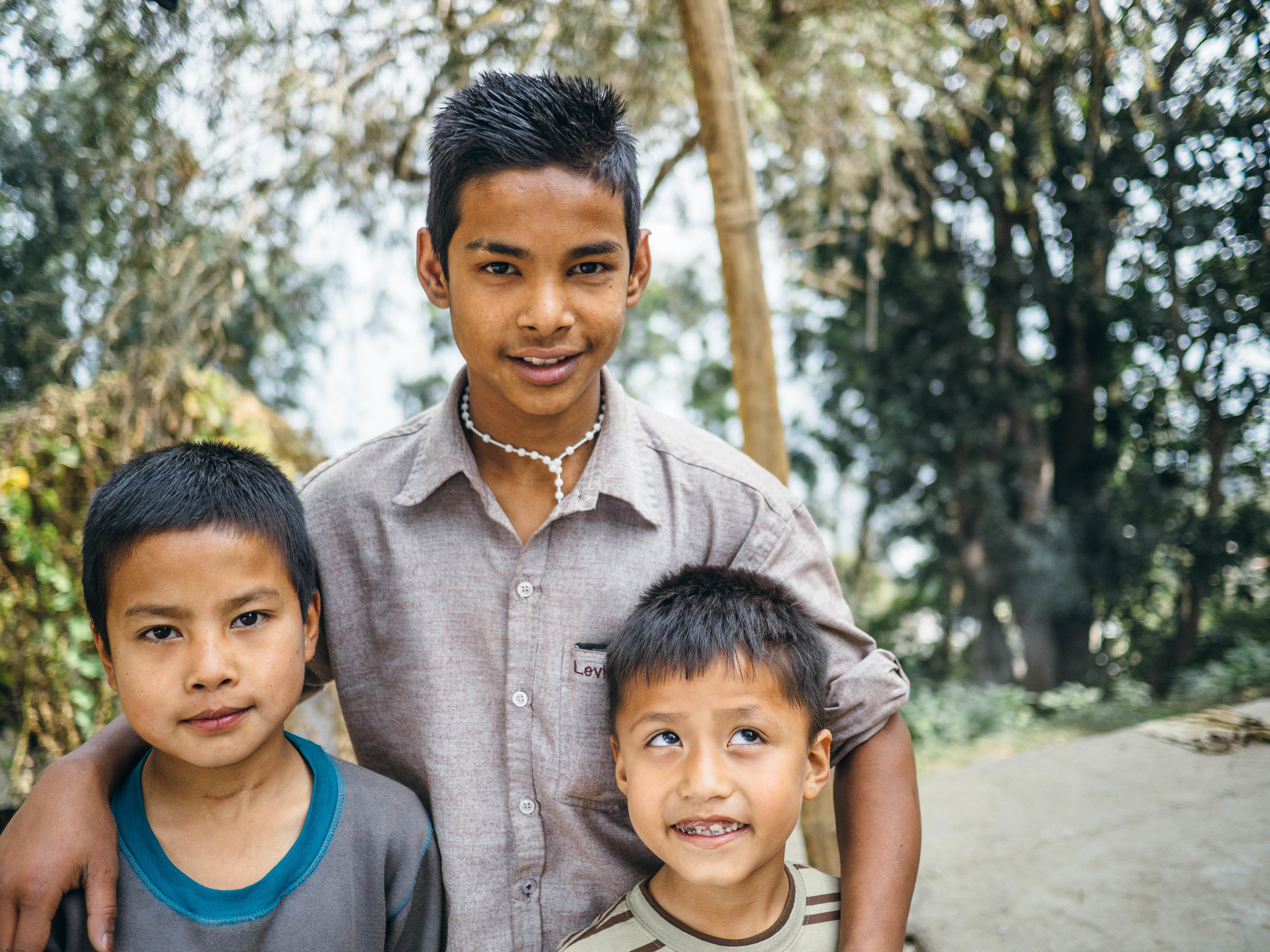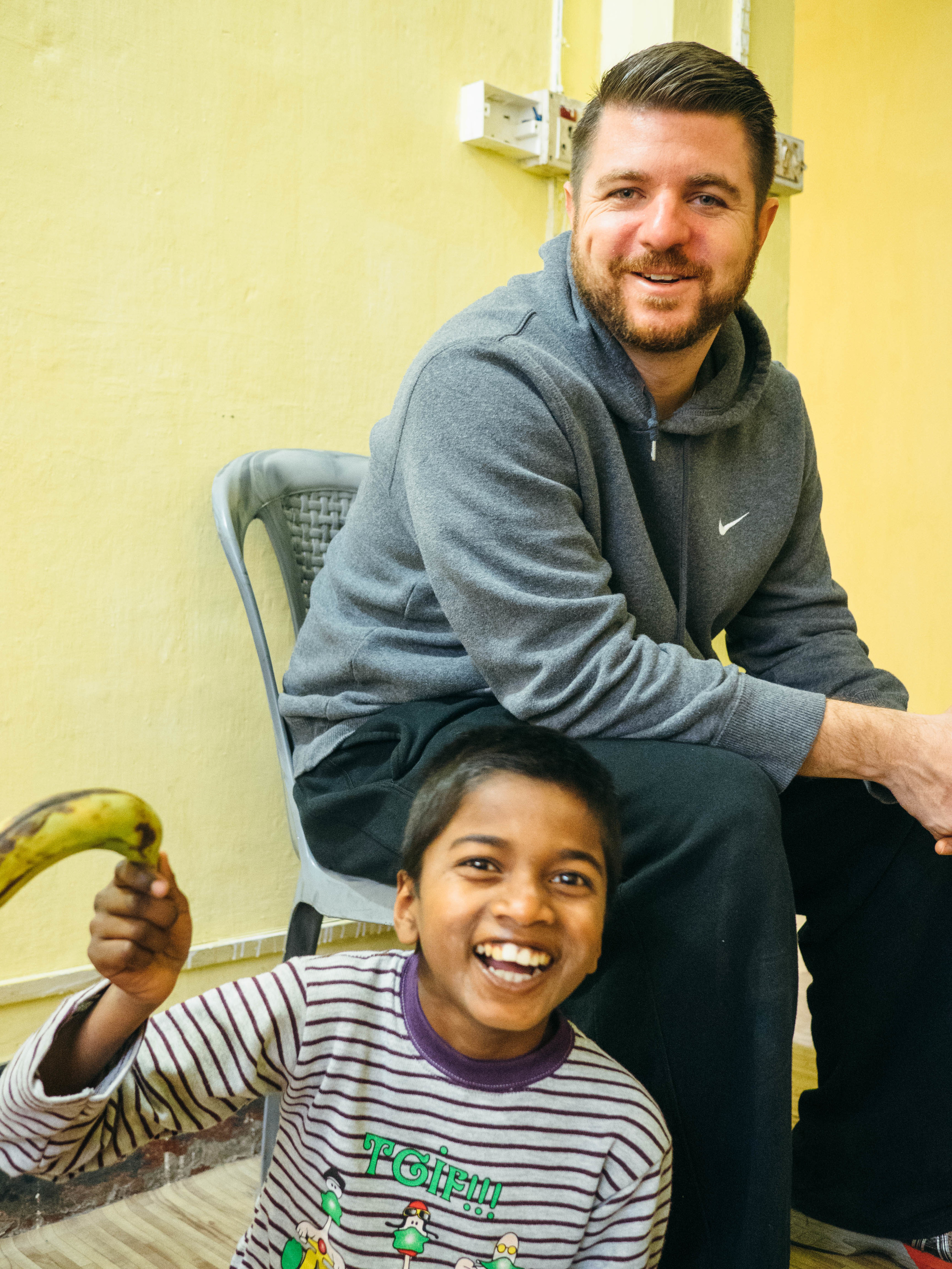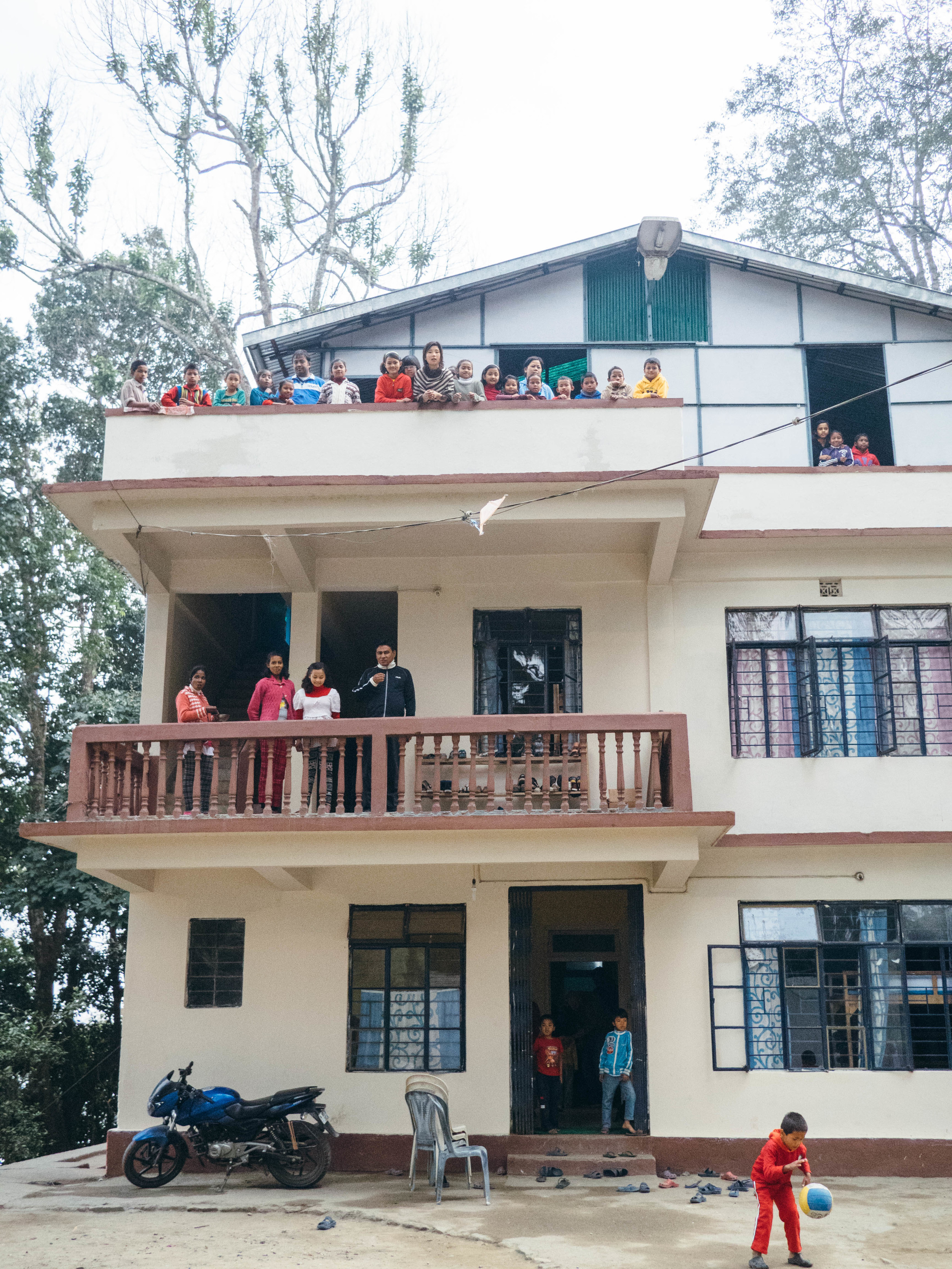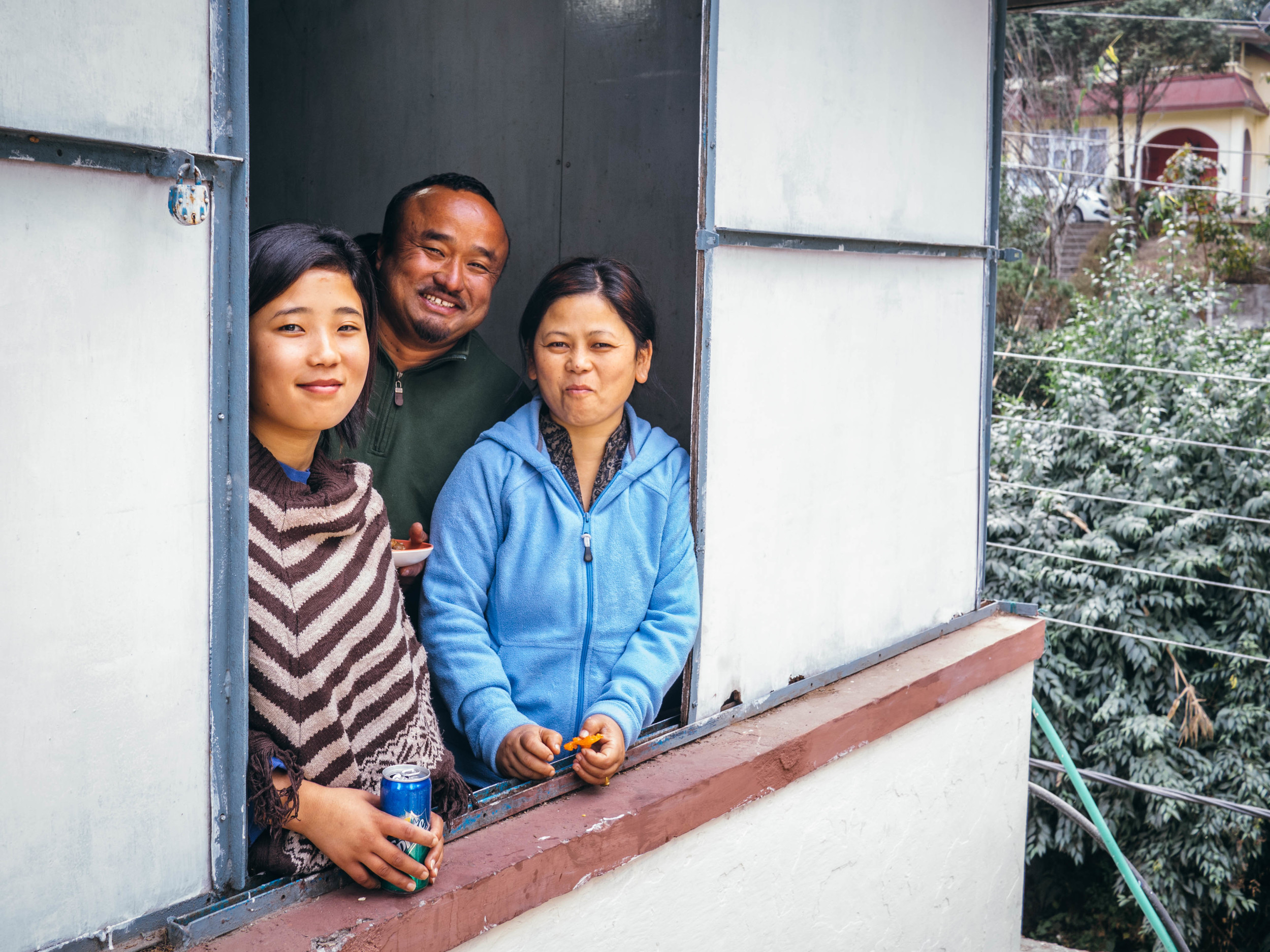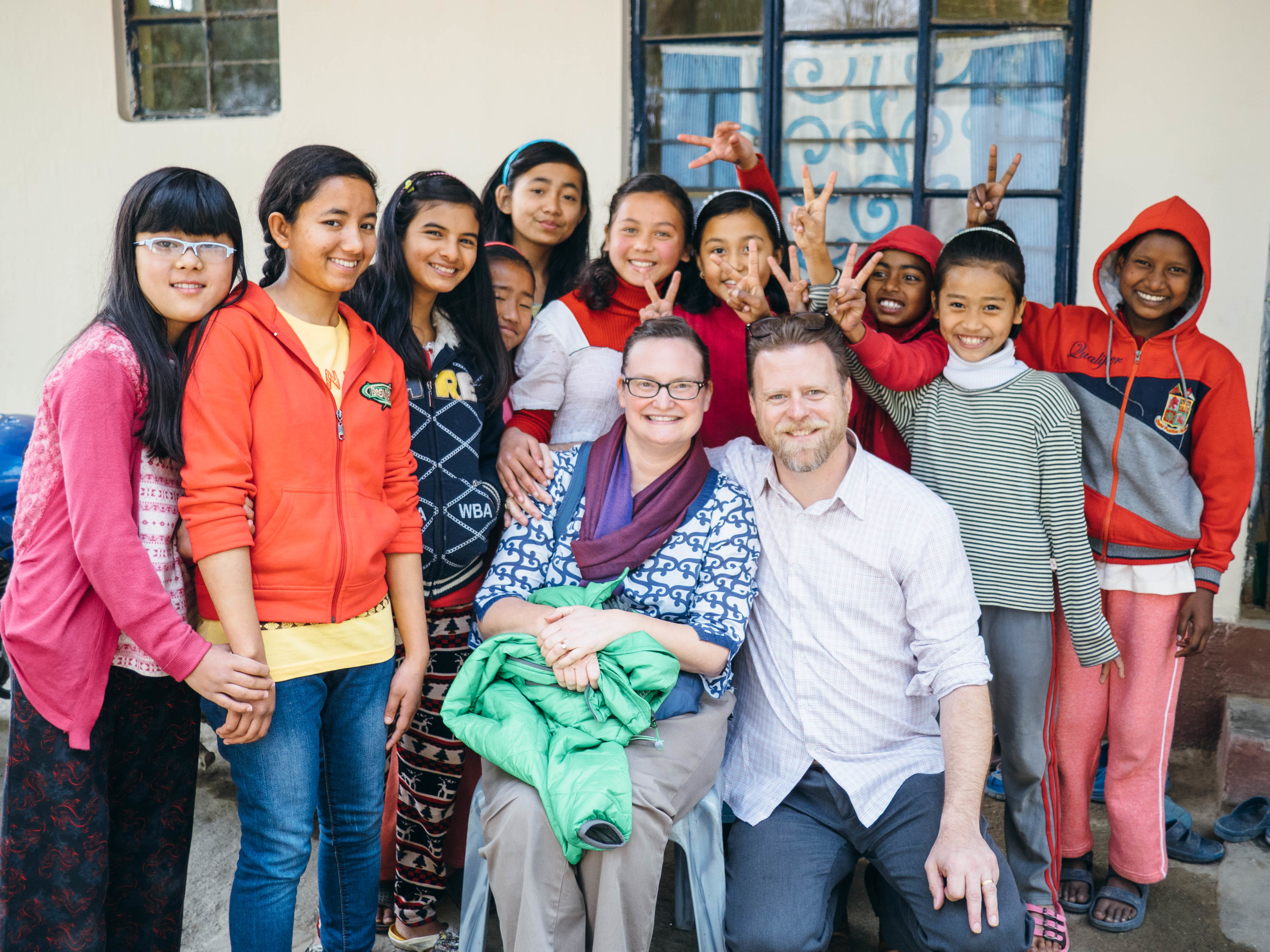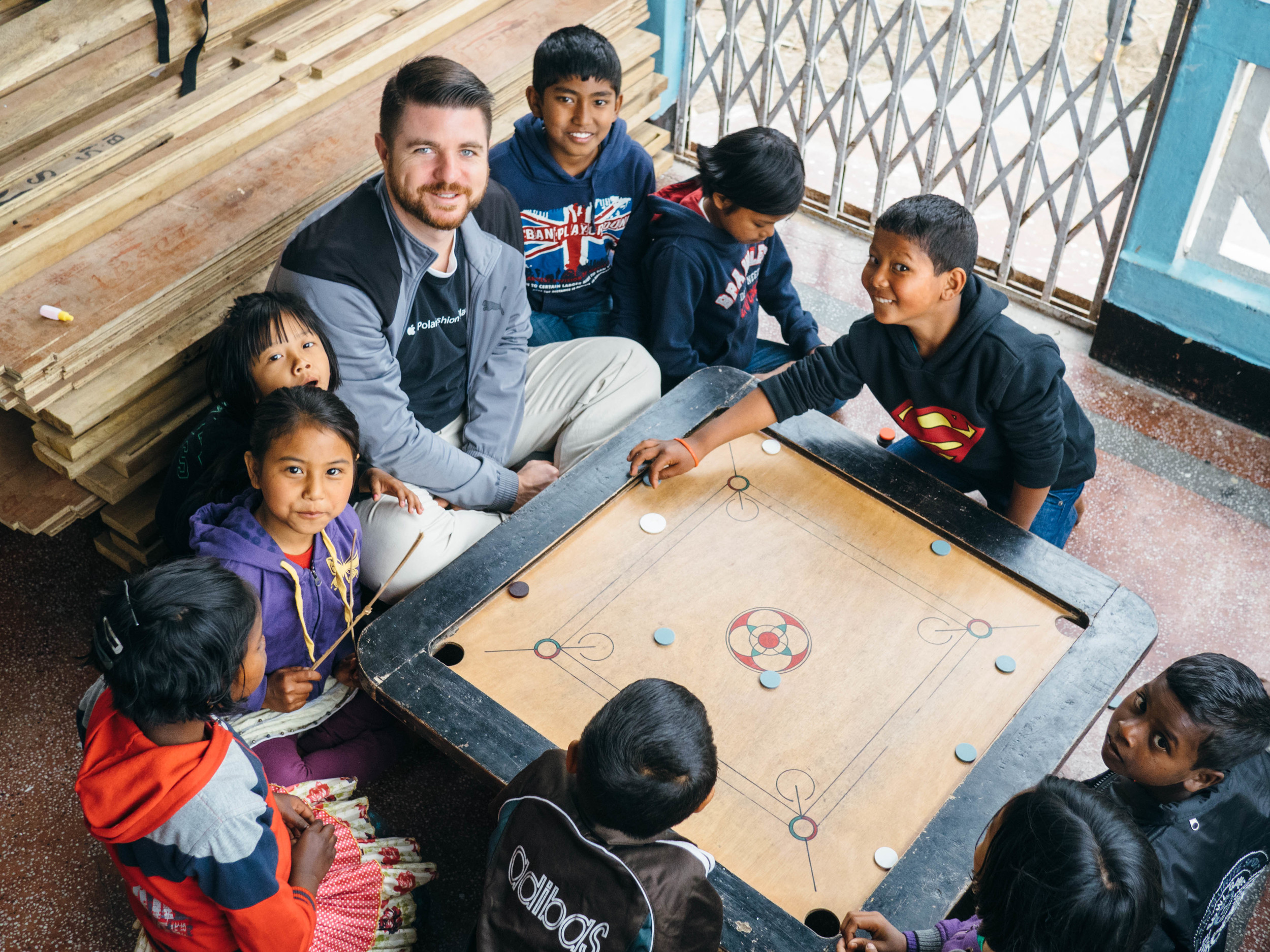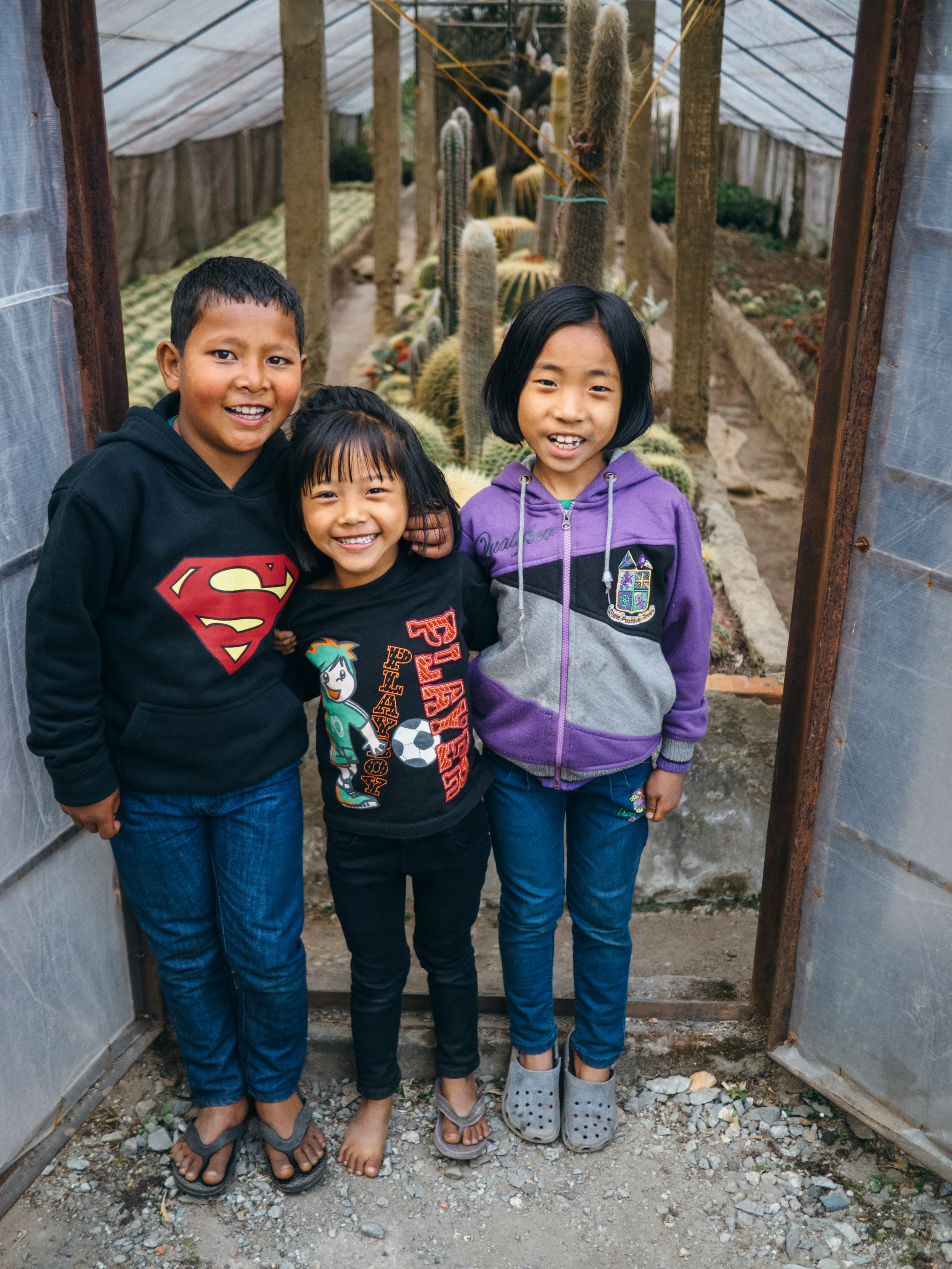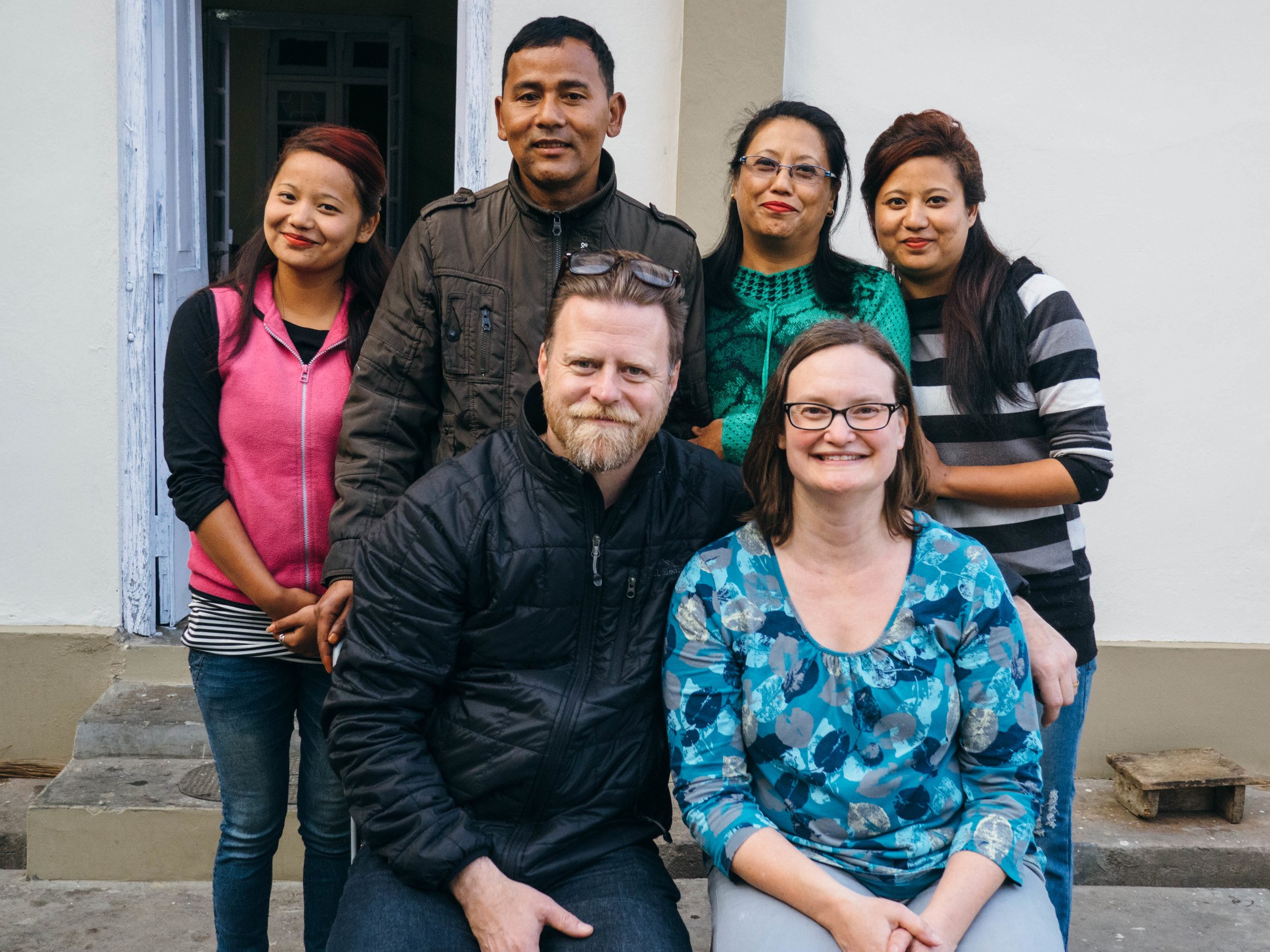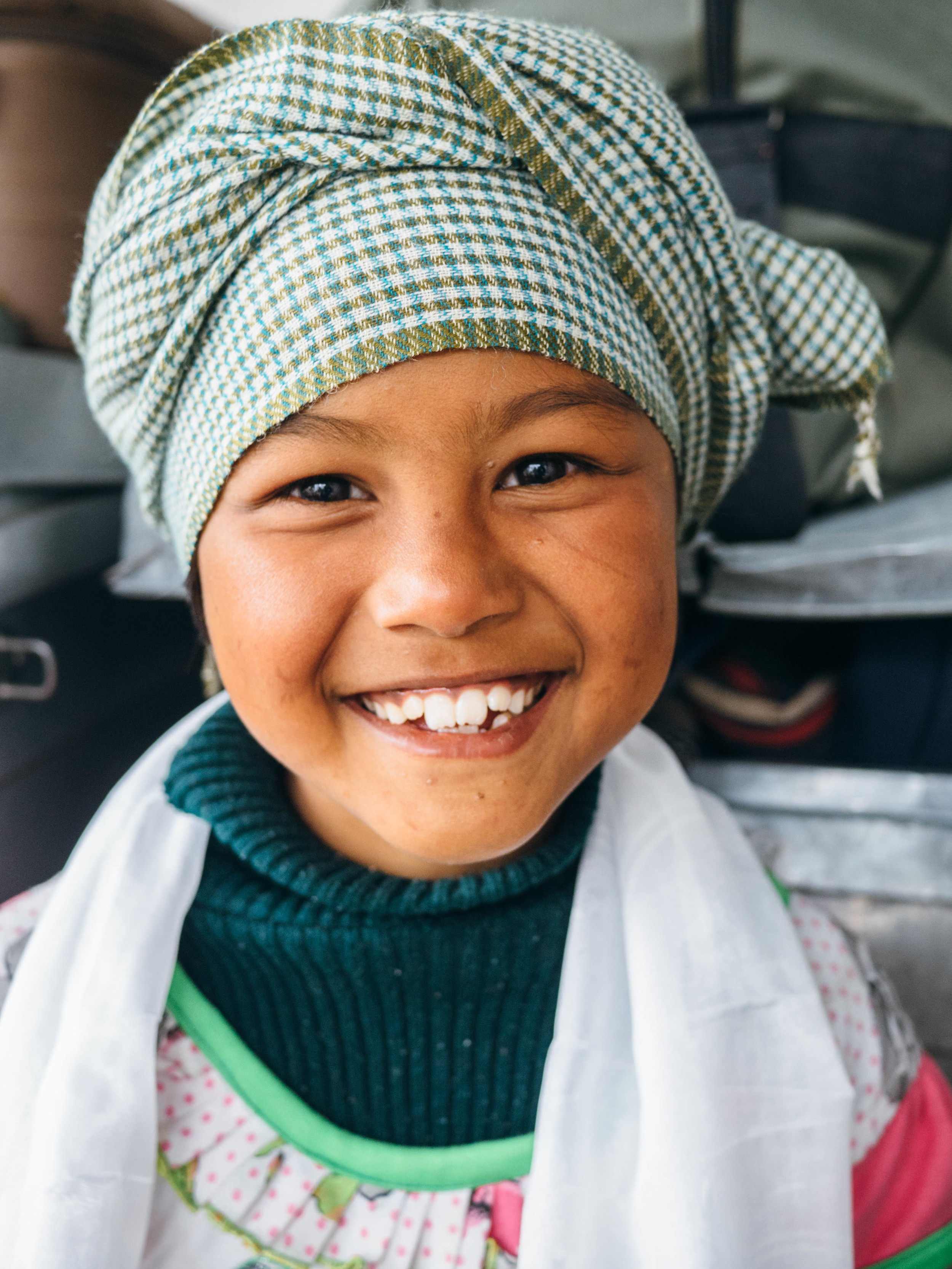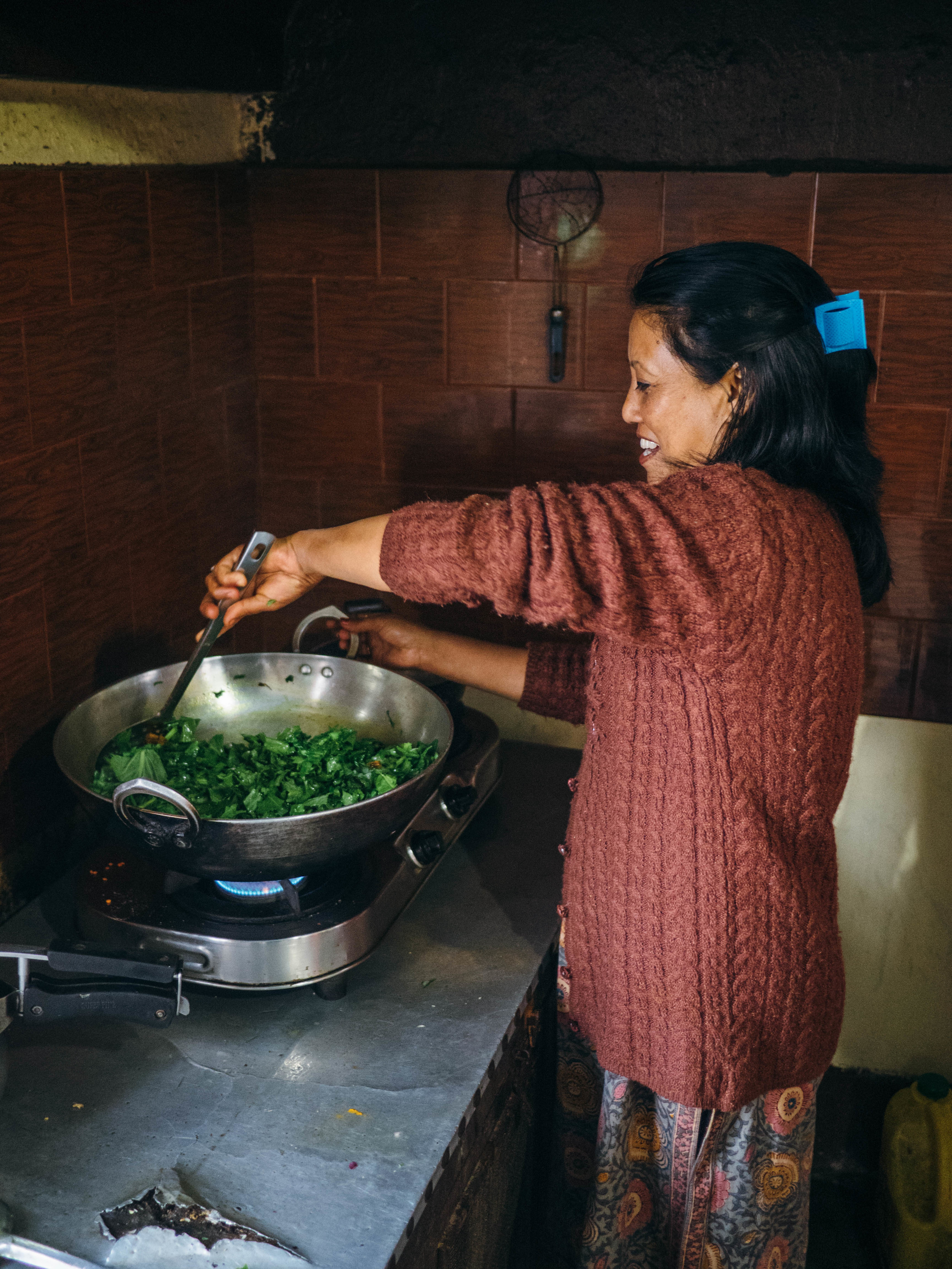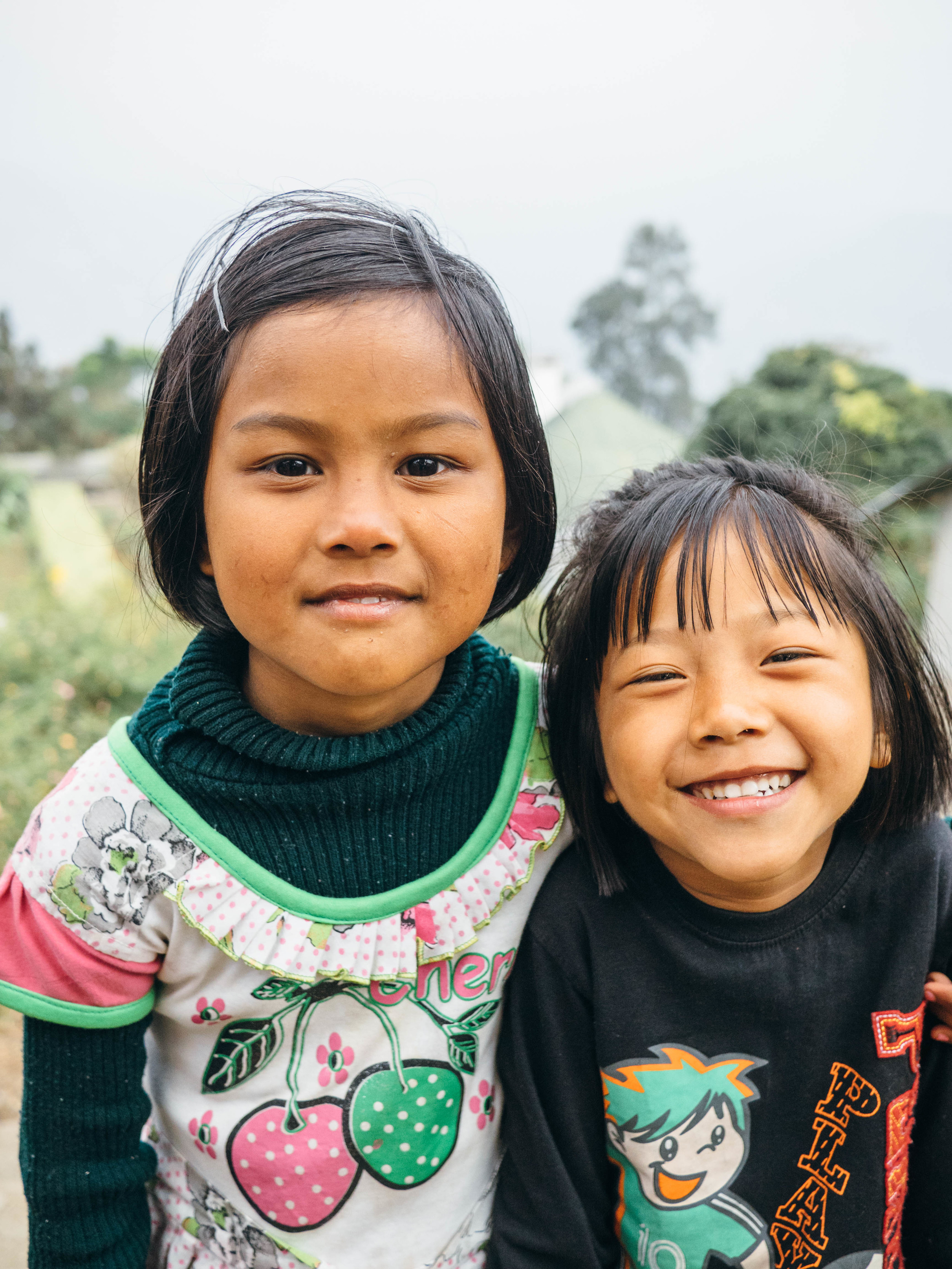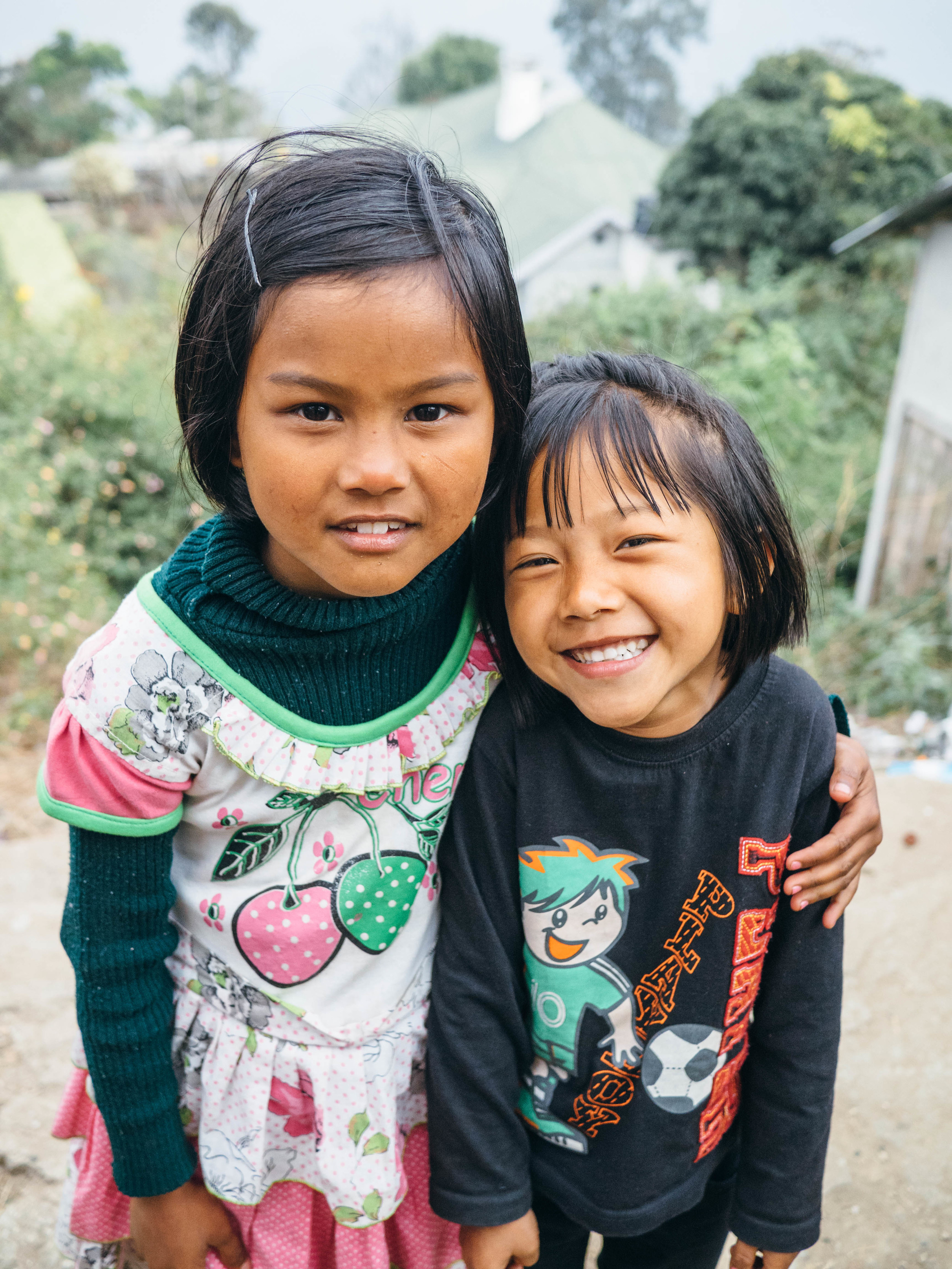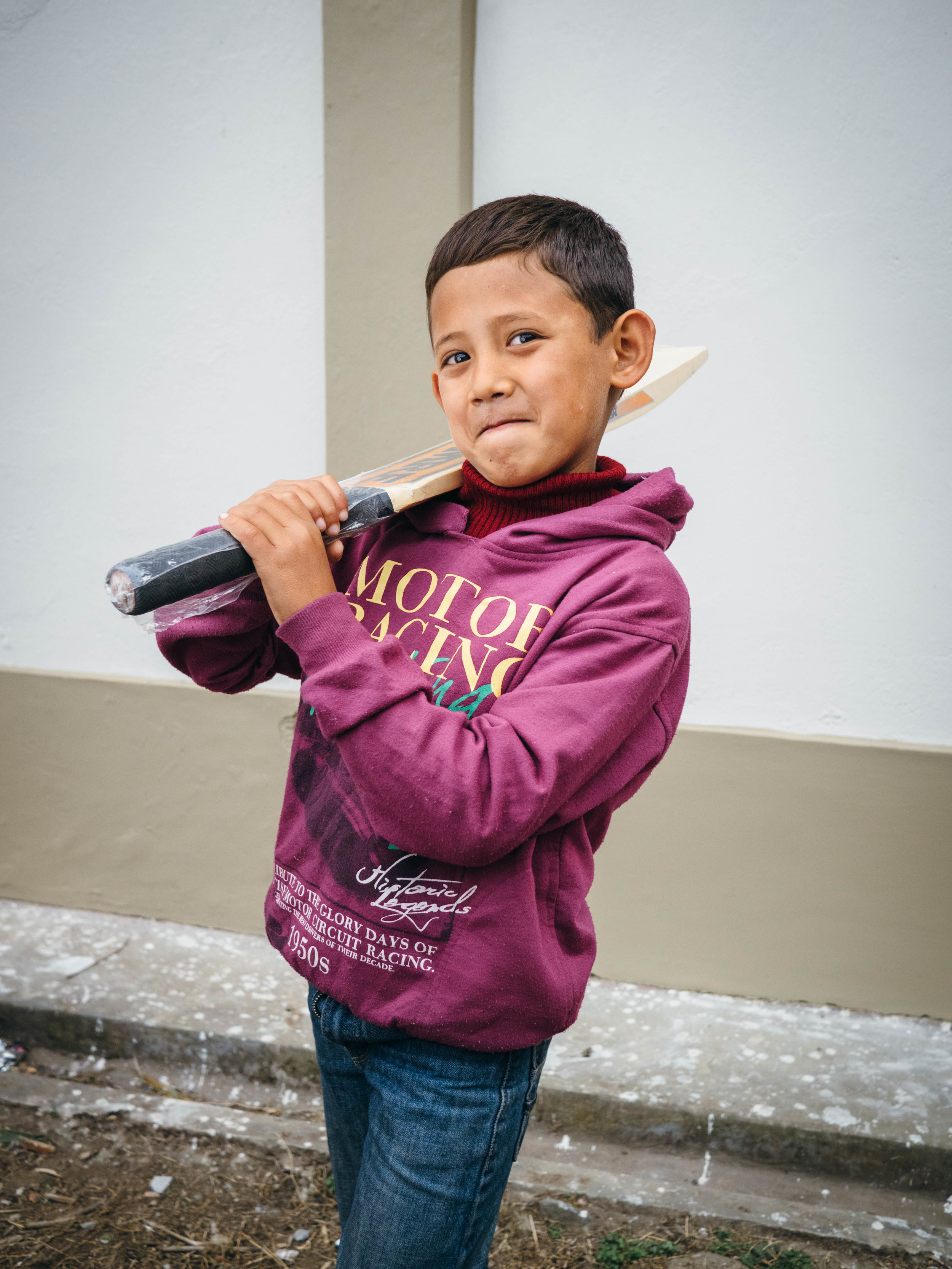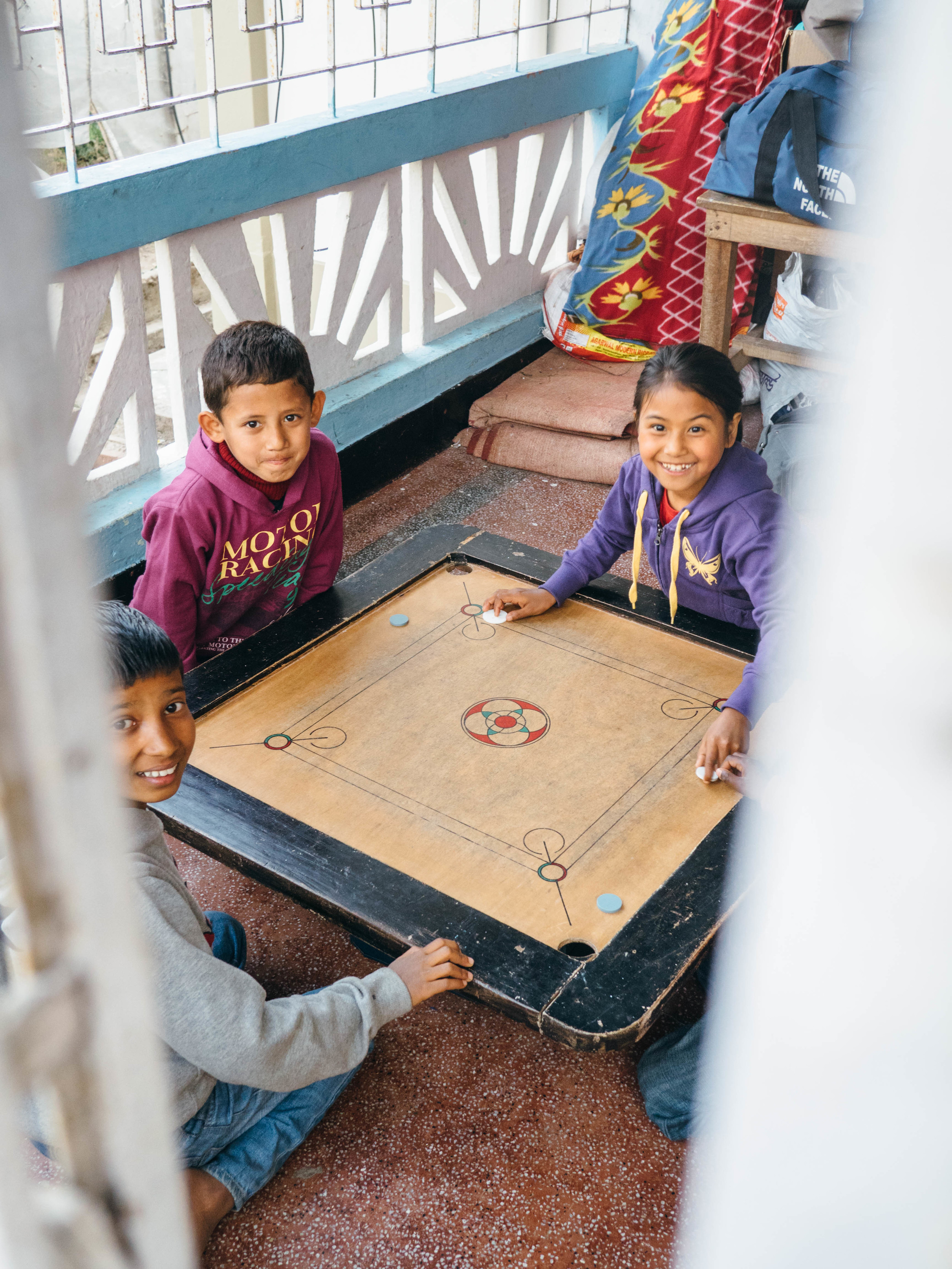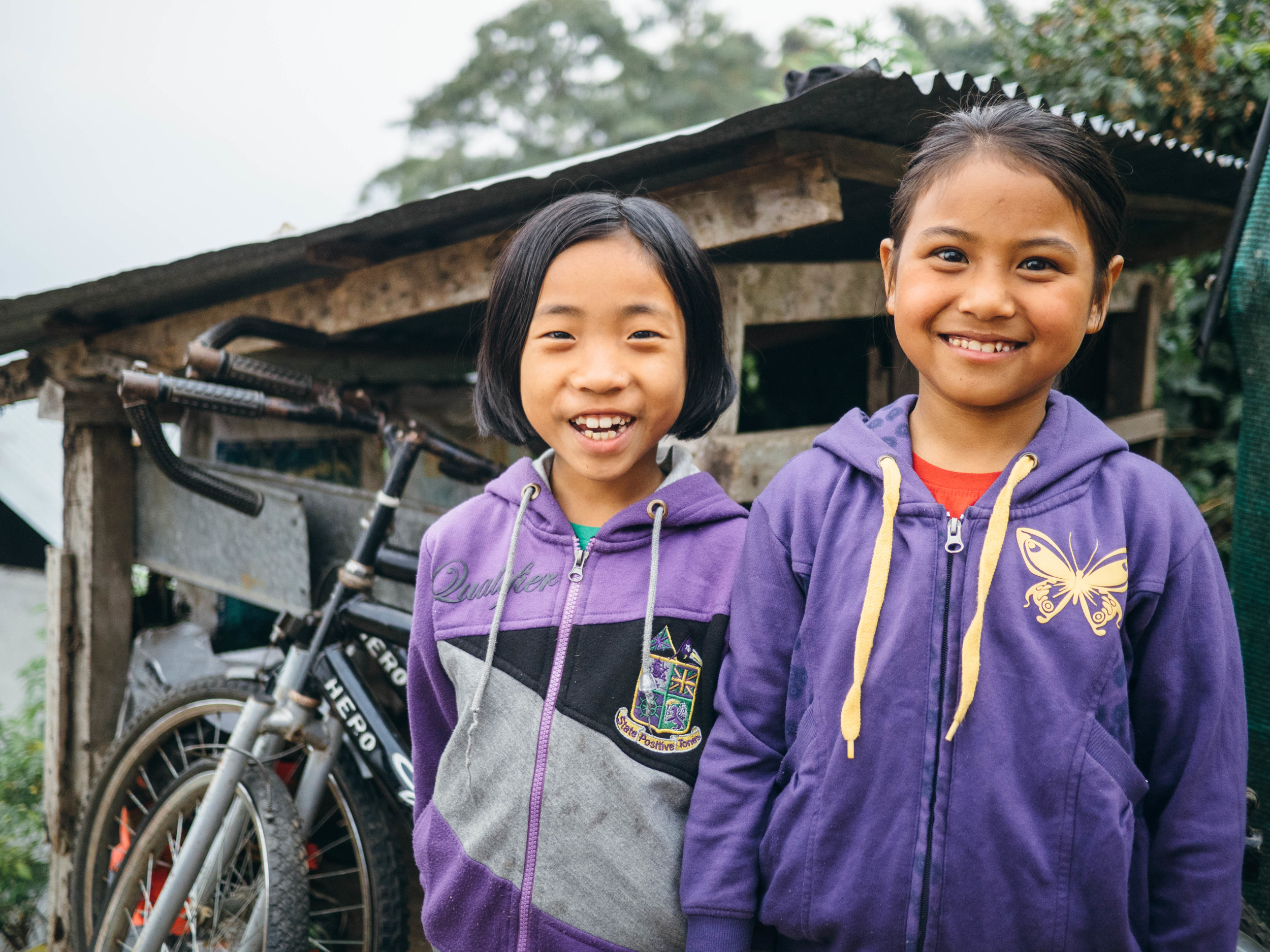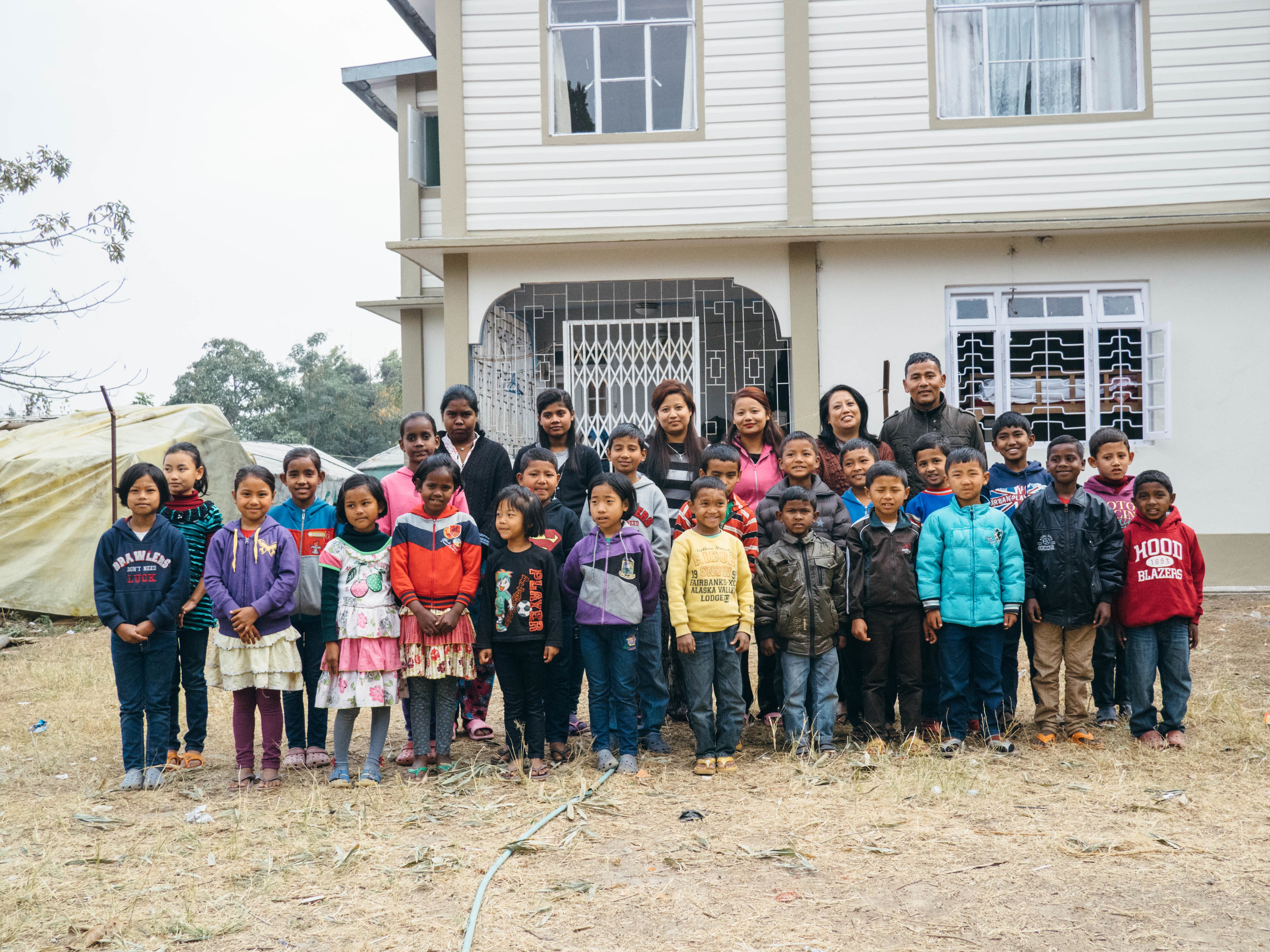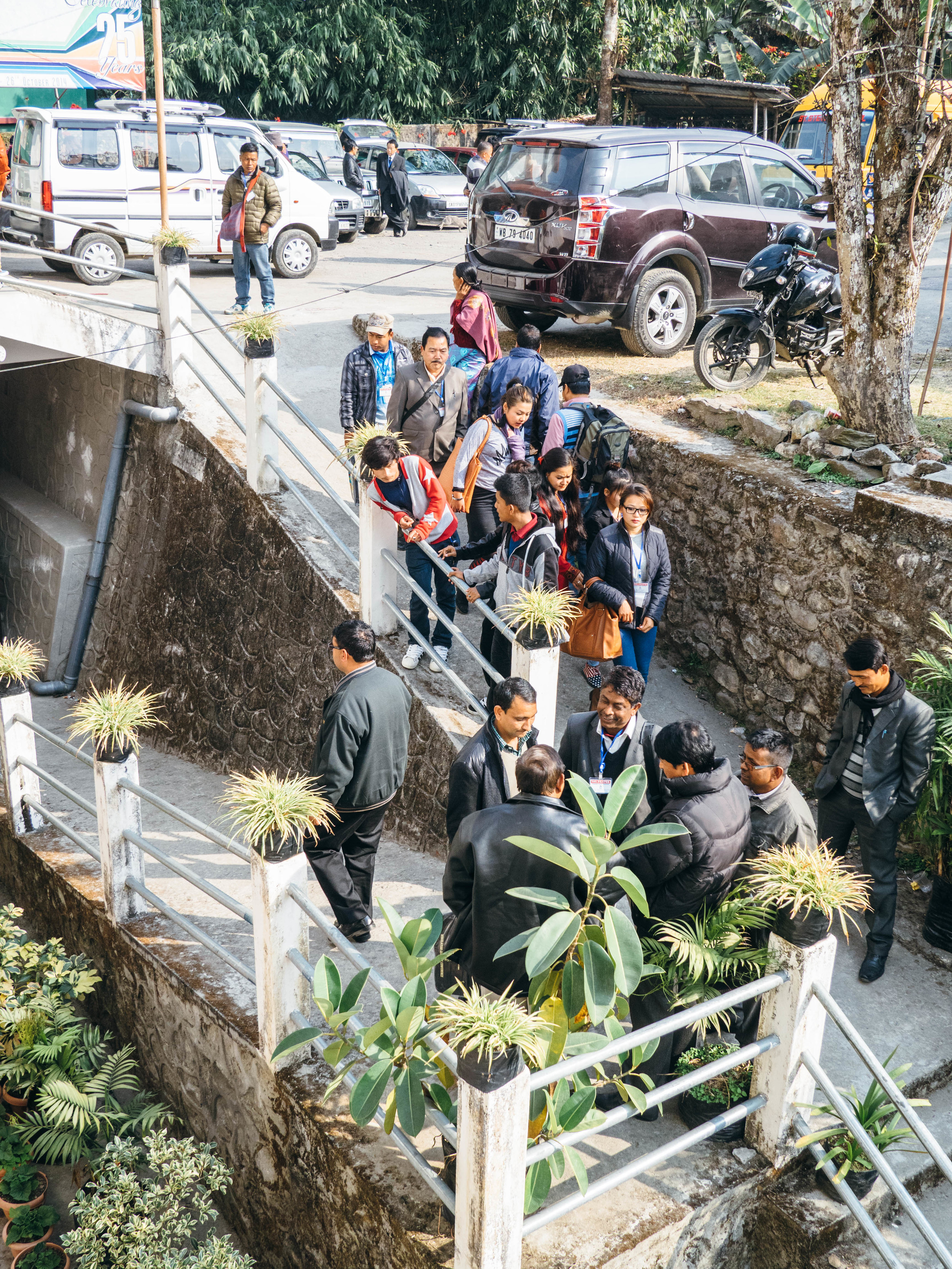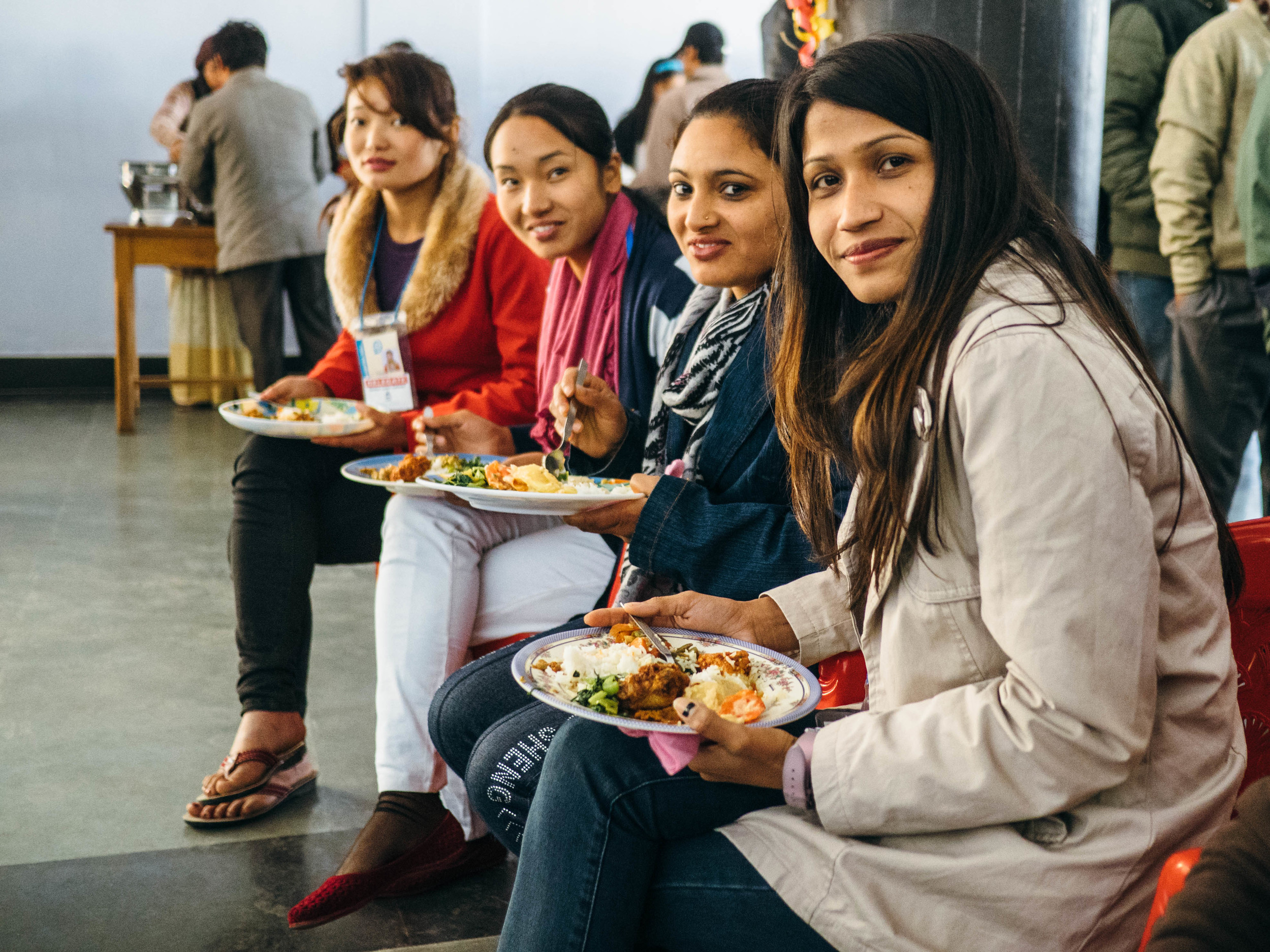





While in the capital city, we choose to stay at the Queenwood Hotel because it's cheap and centrally located. It provides cold A/C, existent wifi, reasonably convenient egress — and it's next door to the best coffee shop in Phnom Penh. But its centrality also means that it's crawling with sex tourists, guys who travel to Cambodia to get drunk, get high and get laid. The prostitutes here are plentiful, beautiful and cheaply bought. And if you llke them young, well, you can get 'em as young as you like if you're willing to slip your cabbie a few extra dollars.
Like many of her residents, Phnom Penh's captivating nighttime beauty conceals a profoundly dark and hopeless reality. From a distance and at a glance, you can appreciate the gorgeous classic bone structure and the sparkle of fancy new baubles, but if you get close enough, you begin to suspect that hellfire itself glows inside the neon tubes.
I'm not sure how much longer I can stand staying at the Queenwood. I'm sure I can budget an extra fiver a night and I can drive a little further for a great cup of coffee. I'm not sure I can endure many more nights filled with the trade's squeals, screams and thumping basslines that fade somewhere between midnight and dawn.
Needless to say, we're not here for the nightlife, and we spend as little time at the hotel as possible. Most mornings are for correspondence with home, errands and eating. After lunch we head out to Prek Eng — which now takes about an hour thanks to some truly heinous road construction — where we arrive before the kids get out of school.
A few of the high school kids are already home when we get there. Pheaktra, for instance, goes to school from something like 6am to noon. Others have similar schedules. So when we arrive, it's pretty laid back. We hang out with the home parents, play Jenga or throw the Frisbee with the kids and relax. But around 3pm the Asia's Hope School on our campus lets out. The neighbor kids filter back to their homes and the Asia's Hope children return to theirs, change out of their uniforms and take in some light recreation before chores, homework and dinner (which is followed by homework, chores and devotions). Sometimes we stay and eat at one of the homes. Other times we return to the city around dusk and eat at one of the many excellent restaurants. So far on this trip we've had Cambodian, Thai, Chinese and Indian food — all excellent.
Last night we left around 5:30 to give Jeff, Peter and Conrad a chance to shower before leaving for the States. They checked out of their rooms in the morning, and so we all hung out in Curtis' and my room until it was time to go. I'm so glad I had the chance to connect with those guys on this trip. Jeff Cannell is my pastor and apart from my wife, he's probably my best friend in the world. Peter Shumaker is a dear friend and a mentor to my two teenage sons, and Conrad Esh is a pastor at the Marysville (OH) Vineyard, and is a new friend that I've loved getting to know. Curtis West is a new friend who is moving to Cambodia to teach English among minority communities outside of Phnom Penh.
What a motley assortment we were, the five of us at the airport surrounded by a dozen beautiful Asia's Hope kids and a handful of staff who had gathered to say goodbye. After a hundred hugs and a couple tears, Jeff, Peter and Conrad tore themselves away from the giggles and embraces and passed through the sliding glass doors into the land of airport lounges, canned air and seat cushions that can, in the unlikely event of a water landing, be used as flotation devices.
Tomorrow morning I'll check out of the Queenwood and drive to Prek Eng to pick up a half dozen staff members who are joining me at the dedication of the Battambang secondary school. We'll drop Curtis off at an undisclosed location and embark upon a moderately epic road trip: me, Narun, Sopheng, Ravi, Savong, Samnang and Anh — in a van, dodging cows, bikes and various homemade vehicles on our way to a massive celebration that will culminate on the 31st as we cut the ribbon on one of the most ambitious projects we've yet to launch.
But today, we're running a few errands, grabbing a light luch and then heading out to Prek Eng to spend the balance of the day with some of the sweetest kids you'll ever meet, in a place that is at its heart a million miles from the Queenwood.
























